#March 8 1945
Explore tagged Tumblr posts
Text
Happy International Women’s Day to women who prioritize women, especially today.
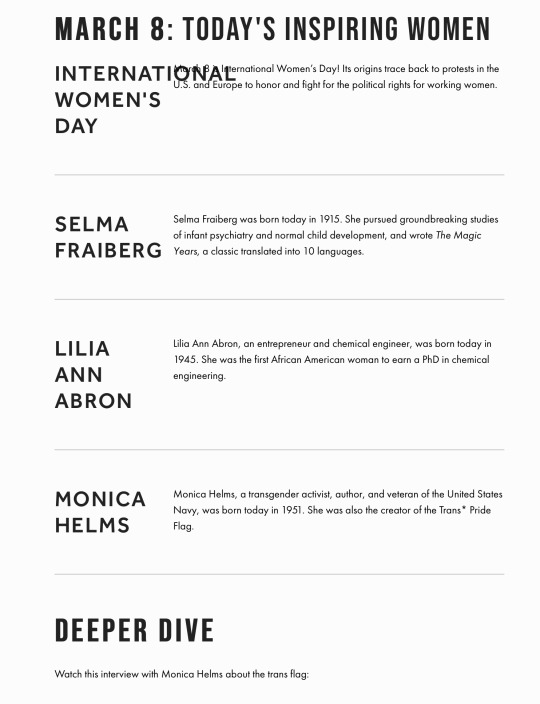
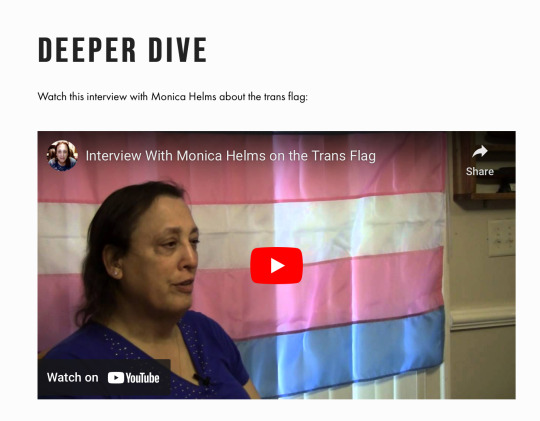
This site gives the deeper dive about the Trans Identified Male who transitioned after his career in the military was over instead of a woman in medicine or a woman in science on International Women’s Day off all days? Fuck that.
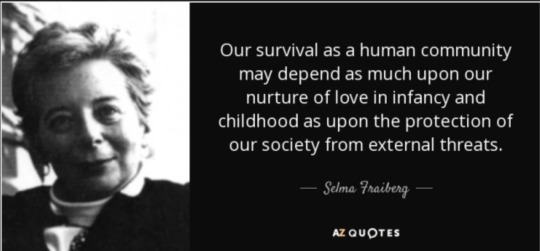
Selma Fraiberg (March 8, 1918–1981) was an American child psychoanalyst, author and social worker. She studied infants with congenital blindness in the 1970s. She found that blind babies had three problems to overcome: learning to recognize parents from sound alone, learning about permanence of objects, acquiring a typical or healthy self-image. She also found that vision acts as a way of pulling other sensory modalities together and without sight babies are delayed. In addition to her work with blind babies, she also was one of the founders of the field of infant mental health and developed mental health treatment approaches for infants, toddlers and their families. Her work on intergenerational transmission of trauma such as described in her landmark paper entitled "Ghosts in the Nursery"[1] has had an important influence on the work of living psychoanalysts and clinical researchers such as Alicia Lieberman and Daniel Schechter Her seminal contribution to childhood development, "The Magic Years", is still in use by students of childhood development and early childhood education throughout the United States. The Magic Years, which deals with early childhood and has been translated into 11 languages, was written when she was teaching at the Tulane Medical School in New Orleans.
At the time of her death, Selma Fraiberg was a professor of child psychoanalysis at the University of California, San Francisco and a clinician who devoted her career to helping troubled children. She was also professor emeritus of child psychoanalysis at the University of Michigan Medical School, where she had taught from 1963 to 1979, and had also been director of the Child Developmental Project in Washtenaw County, Mich., for children with emotional problems.
Fraiberg's work is said to have paralleled that of Anna Freud, a pioneer in child psychoanalysis. Both were keenly interested in young blind people. For 15 years Professor Fraiberg studied the development of children who were blind from birth, and this led to her writing Insights From the Blind: Comparative Studies of Blind and Sighted Infants, published in 1977. In the same year, she wrote Every Child's Birthright: In Defense of Mothering, a study of the early mother-child relationship in which she argued that all subsequent development is based on the quality of the child's first attachments.
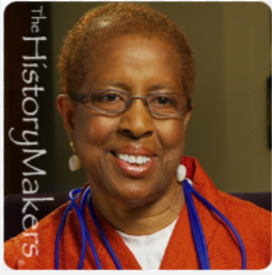
Lilia Ann Abron (born March 8, 1945[1]) is an entrepreneur and chemical engineer. In 1972, Abron became the first African American woman to earn a PhD in chemical engineering.
Abron was born in Memphis, Tennessee,was the second of four daughters.[5]She was born prematurely, at home, and had to be rushed to the hospital by her aunt in a cab, as ambulances were not available for African Americans at the time.[5]
Her parents were both educators who had attended LeMoyne College (now LeMoyne-Owen College). Her father, Ernest Buford Abron, had sustained an injury playing football in college, and was thus unable to serve during World War II. He worked as a Pullman porter and later was a teacher. Abron's mother, Bernice Wise Abron, was a typist from Arkansas. She typed briefs for Wiley Branton, the Little Rock Nine's defense attorney.
Abron's parents were Baptists and she was baptized at the age of 9. She participated in Girl Scouts and in the junior choir at her church.
Abron attended a public school and was placed in the school's math and science track. After graduating from Memphis High School, she decided to study medicine.
Abron was assistant professor of civil engineering at Tennessee State University from 1971. She was also an assistant professor of environmental engineering Vanderbilt University from 1973. In 1975, she moved Howard University as assistant professor of civil and environmental engineering, simultaneously working at Washington Technical Institute (now part of the University of the District of Columbia).[8][5]
Dr. Abron is a registered professional engineer, and a member of the Water Environmental Federation, the American Society of Civil Engineers, the American Water Works Association, the Society of Sigma Xi, and the American Association of University Women.[5][9] She also serves on the Engineering Advisory Board for the National Sciences Foundation.[5]
In 2004, she was elected fellow of the American Academy of Arts and Sciences.[10] She was elected to the National Academy of Engineering in 2020, for "leadership in providing technology-driven sustainable housing and environmental engineering solutions in the United States and South Africa".[11] She was inducted into Tau Beta Pi, DC Alpha Chapter as an Eminent Engineer, and she is a History Maker®.
She has been bestowed the highest honor - Distinguished Member, Class of 2021 - of the American Society of Civil Engineers (ASCE). As of January 2021, she became President of The American Academy of Environmental Engineers and Scientists (AAEES).
PEER Consultants, P.C.[edit]
In 1978, Abron founded and became President and CEO of PEER Consultants, P.C. [3][5][12][13] She was the first African-American to start an engineering consulting firm focused on environmental issues and concerns relating to the physical and human environments. [14] PEER offers engineering and construction management services, environmental management and sustainability services, and advisory/consulting services.[15] With headquarters in Washington, DC and additional offices in Baltimore, MD, Burlington, MA, and Clearwater, FL, PEER is strategically located to serve its clients throughout the U.S. Since 1978, the firm is focused on providing transformative, appropriate, and sustainable solutions for its clients’ challenging environmental problems.
With this consulting firm, Abron succeeded in proving that by enacting sustainable practices in poverty-stricken parts of the world, living conditions there can drastically improve.[16] In 1995, Abron co-founded PEER Africa Pty. (Ltd.), with the mission of building energy-efficient homes in post-apartheid South Africa.[8] Abron was presented with a United Nations award for her work in developing low-cost energy-efficient housing.[5] The company carried out projects all over Africa, including in Mali, Uganda and Nigeria.
Personal life
Abron is a member of Delta Sigma Theta sorority.[9] She gives talks and presentations related to energy and the environment.[17][18] She is particularly active in promoting science education, and through her company, offers financial support to science fair participants. PEER staff are encouraged to work with students in their neighborhood schools, and Abron herself mentors students.[5]
She cites the book Silent Spring by Rachel Carson as an inspiration for entering the environmental movement.[2]
Abron is a Christian who began her three-year term serving as deacon at The First Baptist Church of the City of Washington, D.C. on June 17, 2018.[6] She previously served as president of the Washington D.C. chapter of Jack and Jill for America.[5] She also plays the hand bells in the Angelus church choir.[
Honors
William W. Grimes Award for Excellence in Chemical Engineering from the American Institute of Chemical Engineers, 1993[5]
Admission to the Engineering Distinguished Alumni Academy at the University of Iowa, 1996[5]
Hancher-Finkbine Alumni Medallion from the Finkbine Society of the University of Iowa, awarded for learning, leadership and loyalty to the university, 1999[5][8]
Induction into the National Black College Alumni Hall of Fame, 1999[5]
Magic Hands Award by LeMoyne-Owen College, May 2001[8]
Alumni Achievement Award, Washington University School of Engineering and Applied Science, 2001[5]
American Academy of Arts and Sciences, 2004[8][19]
Superior Achievement from American Academy of Environmental Engineers & Scientists, 2012[20]
#Todayinwomenshistory.org is liberal feminism#Selma Fraiberg#Women in medicine#Books by women#Ghosts in the Nursery#The Magic Years#Insights From the Blind: Comparative Studies of Blind and Sighted Infants#Every Child's Birthright: In Defense of Mothering#Lilia Ann Abron#March 8 1945#Women in science#African American women in science#Lilia Ann Abron received a lot of awards and honors for her work in science
4 notes
·
View notes
Text

This is Gerda Weissmann Klein.
She spent three years in several different Nazi concentration camps. In late January of 1945, Gerda and 4,000 other Jewish women were forced to embark on a 350-mile death march to flee the advances of the Allied forces.
By early May, Gerda was one of only 120 women who were still alive. The rest—including several of her childhood friends—had died from exhaustion, starvation, random executions, and exposure to the elements.
Gerda was one day shy of her 21st birthday when she was rescued by American soldiers. Weighing only 68 lbs. (30.84 kg), Gerda’s hair was nearly white and her clothes were tattered and crawling with lice. She hadn’t taken a bath in three years.
She later recalled seeing the man who saved her life:
“I stood in the doorway of that factory, and I knew that I was free. I saw a strange car coming down the hill, with the white star of the American army on its hood. Two men in strange uniforms sat in it, we gathered them to be Americans. One of the men came towards me, and I looked at him with incredible awe and disbelief that I was looking at someone who fought for us. Of course I was terribly frightened. I looked at him and said, ‘we are Jewish.’ There was a long paused, then he said, ‘so am I.’ It was the greatest moment of my life. He asked me to come with him, and he held the door open for me. He has now been holding the door open for 50 years as my husband.”
Gerda married Kurt Klein in Paris and moved to Buffalo, New York where they eventually had three children and eight grandchildren.
Gerda became a human rights activist and published her own autobiography titled, "All But My Life."

May 8, 1924 – April 3, 2022
historycoolkids
138 notes
·
View notes
Text
If you’re wanting to watch Band of Brothers/The Pacific/Masters of the Air in chronological order with BoB 1st Currahee episode split up in the dates on screen I made a list
(Updated: April 12, 2024 7:58pm pst)
July, 10 1942 Easy Company Trains in Camp Tocca (Band of Brothers Ep. 1 Currahee 2001) August 7, 1942, Allied forces land on Guadalcanal (The Pacific Ep. 1 Guadalcanal/Leckie 2010) September 18, 1942, 7th Marines Land on Guadalcanal (The Pacific Ep. 2 Basilone 2010) December 1942 The 1st Marine Division on Guadalcanal is relieved (The Pacific Ep. 3 Melbourne 2010) *June 23, 1943, Easy Company Trains in Camp Mackall N.C. (Band of Brothers Ep. 1 Currahee) * June 25, 1943, 100th Bomb Group flew its first 8th Air Force combat mission (Master of the Air Ep. 1 2024)
July 16, 1943 the 100th Bomb Group bombed U-Boats in Tronbhdim (Masters of the Air Ep.2 2024) August 17, 1943 the 4th Bomb Wing of the 100th Bomb Group bombed Regenberg (Masters of the Air Ep. 3 2024) *September 6, 1943, Easy Company Boards transport ship in Brooklyn Naval Yard (Band of Brothers Ep. 1 Currahee)* September 16, 1943, William Quinn and Charles Bailey leave Belgium (Masters of the Air Ep.4 2024) September 18, 1943 -*East Company trains in Aldbourne, England (Band of Brothers Ep. 1 Currahee)* -John 'Bucky' Egan returns from leave to join the mission to bomb Munster (Master of the Air Ep.5 2024) October 14, 1943, John ‘Bucky’ Egan interrogated at Dulag Lut, Frankfurt Germany (Masters of the Air Ep. 6 2024) December 26, 1943, 1st Marine Division lands on Cape Gloucester (The Pacific Ep. 4 Gloucester/Pavuvu/Banika 2010) March 7, 1944, Stalag Luft III Sagan, Germany, Germans find the concealed radio Bucky was using to learn news of the War (Master of the Air Ep.7 2024) *June 4, 1944, D-Day Invasion postponed (Band of Brothers Ep. 1 Currahee)* *June 5, 1944 Easy Company Boards air transport planes bound for Normandy (Band of Brothers Ep. 1 Currahee)* June 6, 1944, 00:48 & 01:40 First airborne troops begin to land on Normandy (Band of Brothers Ep. 2 Day of Days 2001)
June, 7 1944 Easy Company Takes Carentan (Band of Brothers 3x10 Carentan)
August 12, 1944, The 332nd Fighter Group attack Radar stations in Southern France (Masters of the Air Ep.8 2024)
September 15, 1944 U.S. Marines landed on Peleliu at 08:32, on September 15, 1944 (the Pacific Part Five: Peleliu Landing)
September 16, 1944 Marines take Peleliu airfield (the Pacific Part Six: Airfield)
September, 17 1944 Operation Market Garden -(Band of Brothers 4x10 Replacements)
October 22/23, 1944, 2100 – 0200 Operation Pegasus (Band of Brothers 5x10 Crossroads)
October, 1944 Battle of Peleliu continues (the Pacific Part Seven: Peleliu Hills)
December 16, 1944 Battle of the Bulge (Band of Brothers 6x10 Bastogne)
January, 1945 Battle of Foy (Band of Brothers 7x10 The Breaking Point)
February 14, 1945 David Webb rejoins the 506th in Haguenau (Band of Brothers 8x10 The Last Patrol)
April 5, 1945 506th Finds abandoned Concentration Camp
(Band of Brothers 9x10 Why We Fight 2001)
April 1-June 22, 1945 Battle of Okinawa (The Pacific Part Nine: Okinawa)
May 7, 1945, Germany Surrenders V-E Day - (Master of the Air Ep. 9 2024) - (Band of Brothers 10x10 Points 2001)
August 15 The Empire of Japan surrenders end of the War (The Pacific Part Ten: Home)
259 notes
·
View notes
Text
The Only Truth... | Part One
The Only Truth I Know Is You Masterlist
John "Bucky" Egan x POW Flight Nurse!Female Reader
While your journeys are very different, fate brings both you and Major John Egan to Stalag VIIA in Moosburg, Germany.

Warnings: Language, Angst, Descriptions of Aerial Combat and Plane Crash, Reader Injury (2nd Degree Burns), Death, Blood, Gore, Angst, John Egan Injury, Forced March, Hospital Setting, POW Camp Setting, SS Officers, Mental Health Struggles, Inevitable Historical and Military Inaccuracies, Rating - 18+ ONLY.
Author’s Note: This is a work of fiction based off the portrayal by the actors in the Apple TV+ series. I hold nothing but respect for the real life individuals referenced within.
Word Count: 7531
-------------------------
January 8, 1945
A cacophony of thunderous explosions and shrieking metal shredded your restful state where you lay perched on the bottom stretcher in the back of a C-47, desperately trying to recover from the routine 0400 wake-up that came on mission days before your arrival at the advance airfield where some eighteen wounded men would come under your care. As the plane lurched and shuddered again, you bolted upright, cracking your head on the middle stretcher above you with a sharp expletive as the rows of jerry cans that you had helped load to fight off pre-flight jitters rattled against the floor where they were strapped down.
You had never experienced flak before. You had trained for the possibility of it at the School of Air Evacuation in Bowman Field, Kentucky, but the reality of it was something entirely different. Watching pinpricks of daylight appear through the alarmingly thin skin of the aircraft flooded your mouth with the bitter taste of adrenaline, your heart pounding violently as it prepared to fight or flee – but given that you were thousands of feet in the air, neither of those options were really available to you. Scrambling to your feet, you stumbled along the narrow path between the supplies that had been crammed onto the plane to be left at the front, to be traded for wounded patients on landing, and tried to get to the nose of the plane. Tried to get to cockpit where Major Roy and Captain Mercer were, pilot and co-pilot – the senior officers. They would surely know what to do.
Grateful for the decision to add your sheepskin flight jacket and gloves to your uniform of olive drab jacket and slacks with shirt and tie, a garrison cap pinned onto your sensibly styled hair, you still felt a shiver run through you despite the added warmth as you neared the radioman Warren and the brand new, baby-faced navigator Schmidt. With brown eyes wide as saucers and freckles splattered haphazardly across his face, you would not have believed the boy to be a day over fifteen. Given the fact that the plane had wandered into the range of enemy guns, your suspicions were growing all the more likely. Turning to see the back of your surgical technician, Fitzgibbons, blocking the entry into cockpit, you were about to tap his shoulder when a shower of wet, hot viscera splattered across you from the left – the only trace of Warren that remained, as a ragged hole in the fuselage now replaced his radio operator’s position.
You were vaguely aware of someone screaming, not realizing the haunting and horrified noise was emanating from your throat until Fitzgibbons grabbed you by the shoulders and shook you firmly.
“Lieutenant!” He shouted, seemingly exasperated with you. “Are you hurt?!”
Snapping your mouth shut, you smeared your hands across your face and down your body, shaking your head as the acrid smell of fuel flooded your nostrils, returning your senses to you. You quickly looked to Schmidt on your right, worried he might have been in the line of fire, and frowned to see him trying to yank a sizeable piece of metal from his shoulder.
“No, don’t!” You shouted firmly and grabbed the first aid kit from the wall above him, quickly padding the penetrating object with gauze and wrapping it, finding the purpose and procedure of it steadying. “It’ll keep the bleeding slow, ok? Keep it in, Schmitty.” You offered what you hoped was a reassuring smile, but with the remnants of Warren, mixed with the contents of the fuel tanks, splattered across you, who was to say what image you presented in that moment.
“It’s all my fault. It’s all my fault Ma’am, we shouldn’t even be here, got lost in the clouds an…” He began to blubber, and the plane shuddered and lurched again as Mercer tried banking out of the hail of flak, fairly dumping you into his lap.
“Easy now, easy…” You cleared your throat as it began to burn with irritation, lifting your head to see smoke billowing in from the hole in the fuselage.
“That’s it, we’re bailing out!” Roy yelled from the cockpit as he hit the bailout bell and Fitzgibbons quickly collected your parachutes, but you insisted on sending Schmidt down the aisle and out the door behind the wing first, given that he was injured.
“You know what to do Schmitty, try not to land on that shoulder.” You nodded firmly as you strapped your parachute on, fumbling slightly due to shaking hands and your thick gloves, but the repetition during your training paid off with your eventual success.
“Yes, Ma’am.” He nodded before seeming to vanish out the side of the plane.
“Sergeant.” You turned to Fitzgibbons, but he shook his head.
“You may outrank me Ma’am but you’re still a lady.” He muttered stubbornly, gesturing insistently toward the door.
“Get a move on!” Came Mercer’s impatient cry from the now-distant cockpit and you glared at Fitzgibbons.
The smoke that had been curling around you ignited then, a wall of flame licking through the air, fixing to separate Fitzgibbons from the door. A look of pure terror crossed his face – in a plane loaded with fuel, carrying dozens of jerry cans and tanks of oxygen, fire was certain death. Gripping the doorframe tightly with your right hand, you flung your left forward in advance of the encroaching, fierce heat, somewhat protected by the leather you wore, though the searing pain on your wrist assured you the flames had still found a way through. Grasping the surgical technician by the collar, you yanked him toward you just before the oppressive wall of fire sealed off the front half of the plane, checking that he nor his parachute were alight before shoving him out the door. You did not wait long to follow him.
Tears were streaming down your cheeks as the sleeve of your jacket was smoldering, the leather hardening and shrinking, the fleece on the inside trapping agonizing heat against your flesh. But your first priority was gravity. Yanking on the ripcord, you cried out at the sharp jolt from your midsection as the parachute caught the air and flung you upward before you began a gentle descent. Then you were able to begin frantically smacking at your coat, trying in vain to stop further injury. But it was not the leather itself that was burning, rather the fuel that coated the surface of it, and it refused to be put out. You had to get the damn thing off.
At last the disorienting cloud gave way to mercifully flat Italian farmland, the ground rushing up to meet your feet. You punched the harness free from your chest, yanking off your gloves, and wrestling free of your coat before stumbling forward toward the sound of a nearby stream, collapsing onto your chest to submerge the screaming flesh of your arm into the icy water. The relief of it drew a soft sob from your throat. The sliver of skin that had been exposed between your sleeve and glove was already starting to blister, would surely scar. You could not see the rest of your forearm trapped beneath your uniform sleeve, but it might have faired somewhat better.
You could have happily lay there for all of eternity, numbing the agonized nerve endings in your arm, but the sharp press of a rifle muzzle between your shoulder blades brought an abrupt end to your moment of bliss.
“Up.” A sharp command was issued in an angry, accented voice and you carefully, if awkwardly, raised up onto your knees with your hands in the air, turning to face the man.
The German soldier’s eyes widened, and his jaw hung slightly open for a moment, his shock more than evident as you revealed yourself to be a woman, before a hardened mask fell over his features once more. He gestured sharply with his rifle for you to rise to your feet and you were quick to obey. He stepped forward, reaching out as if to search you and then stopped, once again looking to your face.
You had read a pamphlet once, on what to do if you were captured. At the time, the situation had seemed utterly preposterous and unlikely, but standing face to face with a German solider in the middle of occupied Italy, you were suddenly grateful you remember something of what to do. You gave him your name followed by,
“Second lieutenant. N-741432.”
“Leutnant?” He muttered, nose crinkling, but his gaze moved to the gold butter bar on first your right shoulder and then your left, the second lieutenant’s insignia. His eyes narrowed further to see the silver wings on your left breast with the prominent N denoting your status as a Flight Nurse. “Schwester…”
The first bit of German was easy to extrapolate, sounded very much like the English version of your rank, but the second sounded like ‘sister’ more than anything else and you were not entirely certain what he was trying to communicate. He seemed finished with the conversation when he motioned to the left with his rifle.
“Go.”
And so you went, keeping your arms raised despite the arching protest of the left, past the still-smoldering remains of your flight jacket and your gloves, past your parachute tumbling across the field on the icy breeze, towards a group of two more German soldiers who seemed equally shocked as your face came into view. You supposed the slacks and loose fit of your jacket made it difficult from a distance to determine that you were a woman, but each of them was quick to smother their reactions as soon as they were revealed. One of the new fellows, so blond he barely had eyebrows, motioned for you to drop your hands and you were barely able to conceal your pain in doing so.
A flurry of Germany left his lips, making your eyebrows furrow in confusion before he gestured at the wet sleeve of your jacket. “Hurt?”
Nodding emphatically, you swallowed, pulling the fabric up slightly to reveal some of the blistered skin. The three men turned to one another, and a rather heated debate ensued, or at least that was the impression you gleaned from their tones of voice and body language, before the loudest among them seemed to prevail.
“You, come, medic.” He grasped your uninjured elbow and led you through the field on a slightly different vector toward a semi-ruined barn where several German soldiers were receiving treatment.
A soldier bearing a white armband with the Geneva cross came over when your guide beckoned and after their brief exchange, gestured for you to take a seat on an old barrel. Taking a pair of scissors, the medic carefully cut through your jacket and shirt, revealing angry, blistered skin all the way up to your elbow. Very gently, your arm was bandaged before he offered you a couple of pills that you did not recognize, and you refused them with a soft shake of the head. He shrugged and tucked them back into his pocket.
“Go, schwester.”
You frowned and pointed at yourself. “Schwester?”
The medic nodded and pointed to your golden nurse’s Caduceus insignias pinned to the lower lapels of your jacket and your eyes widened in recognition. “Oh, nurse.” You muttered quietly and stood. “Thank you.” Nodding to the medic, you followed the soldier out of the farmhouse as you rolled up the ruined ends of your sleeves to keep them from flapping obnoxiously.
What followed was a seemingly endless amount of walking, your entire body beginning to shake with cold and shock, as the soldier sought out his commanding officer. Everything felt surreal, the sound of battle so close at hand, German soldiers all around you, casting repetitive glances your way – it felt as though you had stumbled into the wrong side of a John Wayne film. When, at last, you plodded into the correct house on the outskirts of a small village, you were unspeakably grateful for the fire roaring in the hearth behind the desk of the imposing German officer who glared down his nose at you.
“Too bad you’re a woman…” He muttered in startlingly good English, making it your turn to look on in shock as your legs threatened to give out. “I suppose you also only know name, rank, serial number?”
Clenching your jaw, you nodded stubbornly, trying not to let your face betray the way your heart lurched hopefully at the word ‘also’ and he exhaled a long-suffering sigh. “You can put the contents of your pockets in here.” He held out a small burlap sack and you frowned, but obediently surrendered your favorite tube of lipstick, the four spare hairpins you always carried around, and your change purse – things all stored in your uniform jacket as you found the pockets of the flight jacket too unreliable for storage anyway. Satisfied you were carrying nothing more, he nodded to the man behind you and issued an order in German.
It was difficult to convince your legs into motion again as you were led down to a grimy root cellar with a dirt floor and only one window letting in little light. You had never seen a more welcome sight in your entire life as Schmidt and Mercer lifted their faces to meet you, their equally grimy and worn-out but elated expressions quickly blurring behind tears of relief that mortifyingly flooded your eyes. Dabbing them away, you quickly moved to Schmidt’s side and frowned to see he still had the remnants of your hasty bandage job and the piece of shrapnel in place, seemingly not afforded the same medical care you had been.
“Shit, Schmitty, they didn’t do a thing for you did they.” Kneeling beside him you began to unravel the bandages and gauze. “This needs to come out, then. Captain, would you mind holding him still, sir?”
“I’ve got him.” He nodded and grabbed the boy’s hands as you took a steadying breath.
Wrapping your fingers around the protruding end of the warped, jagged piece of metal, you began to carefully pull it from his shoulder, angling it forward as an uneven, wider piece was revealed on the end. Schmidt did an admirable job of relegating his protests to whimpers and murmurs of ‘oh god,’ only letting out one great yelp as you pulled the last of it free. You would have preferred to flush the wound with something, but there was no water available. Encouragingly, though, there was no great gush of blood.
“You did so good, Schmitty.” You smiled broadly and frowned a moment at the filthy bandages you had removed from him before beginning to unravel the relatively clean ones from your own arm.
“M…Ma’am!” He protested, voice cracking as he saw the state of your skin.
“You’re at much higher risk of infection than me, Sergeant, I won’t take any argument.”
“I don’t suppose I have any say in this?” Captain Mercer arched one of his rather elegant, black eyebrows and you swallowed.
“I’m sorry sir, but not when it comes to medical treatment. Besides, they went out of their way to bandage me once, maybe they’ll do it again.” You muttered and tied off the dressing on Schmidt. “Let me know if it gets hot or more painful, ok?”
He nodded quickly, settling back against the wall and you followed suit, feeling quite fatigued, sore, and to your surprise, hungry. Resting your throbbing arm atop your knee, you leaned your head back against the bricks of the foundation, closing your eyes to listen to the scuff of jackboots across the floorboards above you. Your mind wanted to whirl like a top, to turn questions over and over like ‘Where are we?’ ‘What will they do with us?’ ‘How long will they keep us down here?’ ‘Where are Fitz and Roy?’ but it would just be a waste of energy. Your fate was no longer in your hands and what would happen next would come no matter how hard you dwelt upon it.
The sound of the door at the top of the stairs scraping across the worn floor had all three of your heads snapping up as three sets of feet tromped down into the cellar. It was difficult to hold back your smile as Fitzgibbons peered out from between two German soldiers, the first gesturing for him to join you all on the floor while the other set down a tin plate of thick slices of dark bread covered with thin smears of margarine and four mugs of bitter smelling, black coffee. The first soldier crouched down and pointed at your arm, speaking in German.
“I needed bandages.” You pointed at Schmidt, and he frowned, either not understanding, or unimpressed. Perhaps both.
He straightened with a huff before digging around in his woolen jacket to produce a thick, rectangular bundle, tossing it at you. The two of them then retreated upstairs, shutting the door firmly behind them. Fitzgibbons was on you almost immediately, grasping the folded bandage to unravel it curiously.
“This does not look good, Lieutenant.” He looked at your arm pointedly and you huffed.
“Schmitty was worse off, Fitz, needs must.” You muttered but held out your arm without further protest as he quickly familiarized himself with the foreign bandage and carefully wrapped as much of your burn as he could.
“Thank you for what you did, Ma’am.” He murmured, voice barely audible, and you shook your head quickly.
“You’d have done the same.”
He lifted his eyes to meet yours, gaze filled with a vulnerable uncertainty, and you squeezed his shoulder with your free hand.
“Let’s eat something you two.” Mercer chimed in once he had finished bandaging you and the four of you descended on the plate of food, which tasted a lot better than it appeared. The coffee was just as bitter as it smelled, but was hot and that was entirely welcome.
After the plate was emptied, Fitzgibbons looked to Mercer slowly. “Roy?”
The Captain shook his head and you swallowed your gulp of coffee painfully – of the six of you that had left the airstrip outside Rome that morning only four had made it. Two of you were injured, and your journey had most certainly only just begun now that you were captives of the German army.
As the slim shaft of light that penetrated the cellar began to fade, your companions were fetched one by one for individual questioning by the German officer who had greeted you upon your arrival. When it at last came to your turn, the sun was well set, and though you tried to pay more attention to the detail of the rustic country house, it was hard to pick out much in the low light of the sporadically placed candles.
There was a chair waiting for you opposite the desk this time and you sank into it gratefully, every muscle in your body tight with pain as it felt distinctly like someone was rubbing sandpaper over your superheated flesh with every movement you made.
“I’m terribly sorry about your radioman and pilot, must have been horribly shocking to see such things. What a terrible day you’ve endured Lieutenant.”
Shifting quietly in your chair, you shook your head as he offered a cigarette from a pack of Lucky Strikes – surely confiscated from one of your crew members as they were not so readily available in occupied Italy.
“Is there anything I can get you to ease your discomfort? Blankets? A coat? More bandages?”
Pressing your lips together in a thin line you dropped your gaze to your lap, focusing on filling your lungs to a count of three before slowly exhaling, then repeating the process. Each offer of comfort, each word of kindness was horridly tempting and yet the source also filled you with revulsion.
“It’s a far cry from Lido De Roma where you’re going, no beaches or sea air…” Your head jerked up in shock and a slow, devious smile curled onto the German officer’s thin lips as his mention of the 802nd Medical Air Evacuation Squadron’s posting finally garnered a reaction from you. “I hope you like the Alps, Lieutenant. You will see them on your way by.”
Tears of shame pricked the corners of your eyes, and you blinked them away furiously, looking to the side. Slamming his leather-clad palms flat onto the desk, you jumped and eyed him warily as he stood slowly. “If you have nothing of value to add, then?”
Inhaling slowly you repeated your name, rank, and serial number one last time – much to his ire – before he barked out an order to have you removed from the warmth of his office and returned to the cellar. This process was repeated several times at random intervals throughout the night, the four of you taking turns resting and watching for the unfriendly arrival of an errand boy soldier to haul you upstairs for another ‘chat’ with their English-speaking officer. Sometimes he was friendly, other times he was intimidating. Once he simply sat opposite you in the near-dark and glowered.
Eventually, time or patience ran out and just as the grey light of dawn began to permeate the misty winter morning, the four of you were marched as a group up the stairs and loaded into the back of a canvas-covered truck partially filled with crates. Wedging yourselves into what open spaces you could find, you had barely sat down before the vehicle lurched into motion and began its long and jolting ride to your next destination. The sun was much higher in the sky by the time you arrived at a small train station, emerging into midday, the mists long burned away. Herded across the tracks towards a cattle car, you were startled to see a group of other American soldiers – infantrymen, being loaded in.
“Up.” Came the command from the German soldier at your back and you reached up gratefully for the broad hand of corporal already in the car who helped hoist you inside.
“How the heck did you wind up here?! Ma’am…” He quickly tacked on, and you could not help but laugh a little at the bewildered expression on his face, shuffling further into the car as the last of your comrades were loaded in.
“Well the long and the short of it is, we ran into a bit of trouble during our flight…”
Captain Mercer scoffed as he came to stand behind you. “You could say that again, Lieutenant.”
The space was suddenly plunged into darkness as the door was slid shut and barred closed. You nearly toppled over as the train jostled forward, thanking Fitzgibbons as he steadied you. You embarked on a seemingly endless journey in darkness as the train ascended and descended, stopped and started, climbed and came down across unknown landscape. It was nigh impossible to see through the thin gaps between the slats of the car itself, but you knew from your ‘conversations’ with the officer that you were crossing the Alps. Could feel the air grow cold as you huddled closer to the men around you for what warmth you could glean as your breath hung from your lips in foggy exhales.
Your bladder ached until you could no longer deny needing to use the squalid bucket in the corner. Mercer, Fitzgibbons, and Schmidt formed a human wall with their backs to you, loudly clearing their throats as you took quite possibly the longest piss in the history of womankind. With that basic need met, the ravening hunger set in. Those slices of bread were long digested by the time the train came to a stop and disgorged the lot of you, blinking into the daylight like mole-people, squinting for signage.
“Moosburg.” Mercer muttered under his breath, and you hugged your arms tightly around yourself as you stumbled through the snow to form two lines as instructed by new soldiers whose uniforms sported the double lightning symbol of the SS.
You would had never thought it possible to envy a dead man, but standing there shivering in the snow as cruel-faced men in well-cut uniforms marched up and down the lines with their snarling dogs, you wondered if perhaps it would not have been better if that piece of flak had taken you out at the same time it had struck Warren. You were not entirely certain if you were strong enough for what was to come.
------------
April 11, 1945
Every step was an agony. It was remarkable, really, how many injuries two goons had managed to inflict on Bucky’s body in the brief moments between Buck’s escape and Lieutenant Colonel Clark’s intervention. At least two of his ribs were cracked by the butt of that rifle, severely hampering his ability to breathe properly. Then there had been the sharp kick to the back of his calf, wrenching his knee. The coupe-de-grace had been the left hook to his jaw, shredding the inside of his lower lip across his teeth and flooding his mouth with blood. If Clark had not called them off with the threat of riot, Bucky was not entirely sure he would have made it out of that village.
As it was, he had barely made it off the floor of the church the next night, requiring a great deal of prodding from DeMarco. Teeth gritted against the raw ache in every limb, every joint, he had risen to his feet through sheer force of will, knowing the alternative was a bullet to the brain. Somehow even though Buck was well on his way back to the American lines – by god he truly hoped so – Bucky could not face the thought of disappointing him by dying like that and so he had persisted. Had kept putting one foot in front of the other as they had trudged through the mud, crossing the Danube, putting another twenty kilometres between them and Nuremberg.
It had not made it any easier to keep up, however. Bucky had felt himself slowing, felt his body refusing to keep pace with the rest of the men. Every time he had lifted his eyes from the boots of those in front of him plodding through the endless muck, he had been surrounded by different faces. As he had neared the back of the group, lightheaded from pain and lack of oxygen, he had taken a second glance as he realized the faces around him were those of Brady, Cruikshank, DeMarco, Murphy, and Hamilton – all men from the Hundredth. All had been keeping pace with him.
“We’re almost at 20, Bucky.” Brady had murmured quietly under his breath, glancing back at the pair of goons bringing up the rear.
“Keep it up.” Cruikshank had nodded encouragingly.
By some miracle he had made it into the half-collapsed warehouse, crawling into a corner that was still partially covered by its patchy roof and had promptly fallen asleep. There had been a gentle prodding against his shoulder sometime later, daylight filtering in through the dust motes drifting thickly in the air and an offering of bread had been waved in front of his face. He had pushed it away clumsily before falling back asleep. Bucky’s next return to consciousness had been with his arms slung across the shoulders of DeMarco and Brady, a great amount of protest falling from their lips about the size of him.
It had been dark again. Darkness meant more walking and so he had awkwardly planted his feet. Relieved sighs had filled his ears from both his companions as the three of them worked together to propel him out of there and down the muddy road. Night had yielded to the hazy light of dawn and at last a sea of barbed wire fences, clapboard buildings and canvas tents came into view. Bucky had quite honestly never been so pleased to see a Stalag in his entire existence.
“Almost there.” Groaned Hamilton, who had since switched off with DeMarco, though the stalwart Brady had yet to budge from beneath his right arm.
As they stepped through the gates into the main courtyard, Bucky lifted his head to eye Clark blearily. “Guess they’re not gonna process us.” His words were slightly slurred as he tried to present his usual level of joviality, but the man’s brows only furrowed deeply in response.
“Get him to the hospital immediately.”
There was a chorus of ‘yes sirs’ and some hesitation before Hamilton and Brady got their bearings, but then they were on the move again. Bucky’s legs were barely responding by this point, toes mostly dragging through the incessant muddy landscape that seemed a consistent feature of every Stalag he’d had the misfortune of visiting thus far. As his vision began to go fuzzy, black dots eating away at it while it simultaneously began to dim at the edges, Bucky began to worry this might be his last camp.
“Put him right there please.”
Bucky tried to swing his head towards the most musical sound he had heard in over a year, but Hamilton and Brady were turning him to lay on his stomach, rambling about the broken ribs on his back and all he could see were worn wooden floorboards. Until suddenly your gorgeous face flooded his vision as you knelt beside his cot, your shockingly feminine fingers cradling his face to gently turn it and ensure he was not smothered in the pillow.
The style of your hair, the lashes framing your eyes, the cupid’s bow of your upper lip – the unmistakable womanliness of you; it made his heart ache.
“Must be in heaven…” He slurred as there was certainly no way he could be alive anymore. Women did not exist in this reality of underfed men and murderous goons.
“They got you good, Major, but you’re still very much with us.” You smiled warmly up at him, and he groaned out a laugh, eyes crinkling at the corners.
“You’re killing me, angel face.” He wheezed, lips clumsy and barely responsive, before promptly blacking out.
------------
Your heart plummeted as you watched his eyelids fall, shuttering those stunning, if exhausted, blue eyes, terrified you had lost another one before you even had the chance to try and save him. Fingers delving beneath the collar of his shirt, you were greatly relieved to find his strong pulse. Holding your cheek in front of his notably plush lips, the bottom one all the more pronounced by his recent injury, you were even more encouraged to feel the caress of his steady breathing. Sitting back on your heels, you nodded up to his mismatched pair of friends reassuringly.
“Did he just call her ‘angelfish?’” The blond one with angular features and a mouthful of gold muttered as they watched over their friend protectively but also seeming shocked, as everyone before them had been, to find an American woman in a POW camp.
“Maybe he was going for ‘angel face?’” The brunette with sturdy eyebrows replied in a hushed voice.
“Are you gentlemen in need of anything?” You asked, fighting hard against the amused smile that wanted to break through. They were truly a distraction when you had a patient in need of attention before you.
“No, Ma’am.”
“Thank you, Ma’am” They shuffled off to leave you to your work.
Taking a moment to assess the length and breadth of your patient, you carefully worked off his leather flight jacket before untucking his uniform shirt and undershirt to reveal the deep purple bruises on his back. His friends had been very right to be worried about broken ribs – at least three by the span of the contusion. Kneeling back down you looked over his face once more, gently lifting his head to inspect both cheeks and confirm the bones were all intact. There did not appear to be anything in need of bandaging. It was most likely that undernourishment, the march, and the broken ribs all compounded to extreme exhaustion.
“What do we have here, Nurse?”
You looked up as Major Chalmers, a British surgeon, and head of the hospital emerged from one of the exam rooms. He had been a resident POW of Stalag VIIA for nearly eight months when you arrived in January, happily surrendering one of his exam rooms to become your separate quarters in return for your work in the camp hospital. It was an arrangement that benefited both of you, kept you safe and out of the male population and occupied the long and lonely hours that seemed to pass at their own pace in this place.
Chalmers had done what he could to care for your burned arm, re-bandaging it daily. However, by the time he had been able to start giving it proper care, the damage had already been done. The skin was now permanently mottled by scars, unnaturally smooth, with a texture akin to crumpled cellophane. You were always very mindful to keep your mended sleeve down to your wrist. It was not all that difficult to cover your shame when the rest of your wardrobe consisted of standard men’s POW wear from the Red Cross – the sweaters draping over half your hands and the winter coat blissfully warm but nearly swallowing you whole.
It was only due to Chalmers’ temerity that anyone walked away from the camp hospital at all. With supplies chronically low, men were dying of the most preventable and treatable things. All you could do most of the time was put on a brave face and hold their hand, give them a little comfort at the end. Even Schimdt, despite your best efforts, had found his shoulder wound quickly beset with infection in the less than sanitary environment. Penicillin was non-existent here and he had faded fast, lost in a feverish delirium as you held tight to his hand, watching the light fade from his burning eyes. Your brave façade was second nature to you by this point, showing itself more often than your real, bedraggled self who only showed her face in the cold isolation of your locked exam-room-turned-solo-combine at night.
“Newly arrived American Major, force marched over eight days, beaten two nights ago. At least three broken ribs, damage to lower lip, abrasions to the face and contusions to the back but nothing else I can see. Pulse is strong, breathing is steady, but lost consciousness almost as soon as we laid him down, sir.”
“Hmmm.” Chalmers made a noise of displeasure at the last and conducted his own exam, digging out one of the makeshift charts to add some notes before glancing at his watch. “Do we know when he last ate?”
“No, sir.” You shook your head.
“Alright, I want you to sit with him and keep an eye on his vitals. Hopefully, he’s simply sleeping this off, but I want you to get some water and broth in him as soon as he wakes up alright?”
“Yes, sir.”
Collecting the requisite liquids, you settled onto the sliver of floor space between the Major’s cot and his neighbor’s, working at folding some boiled and dried bandages, now ready for re-use. The actual hospital itself was unspeakably crowded, men nearly stacked atop one another around a small cast iron stove. Originally built for 10,000, the camp’s population had been well over that when you had arrived in January and seemed to multiply every week now. Things had become so dire, a tent hospital had been erected adjacent to the building you lived and worked in to allow for the treatment of more men. It was crowded and ripe, and even surrounded by all these humans you still felt alone as the sole representative of your sex.
As you pulled each strand of once-white fabric from the basket, carefully rolling and tucking the ends to form neat bundles, you studied the unconscious man’s face. Errant dark curls were dangling across his tall forehead and the most absurd and yet endearing dusting of hair graced his upper lip. Clearly, he was going for a Clark Gable, but it was not quite there. Even with one ear poking a mile out to the side, however, you swallowed tightly as you realized you would not change a thing about him. Taken individually his attributes seemed odd, yet combined to make an incredibly handsome whole. Not to mention his feet were dangling off the end of his cot, his shoulders barely contained by the sides of it. If he woke up, no when he woke up, he was going to be a devastating sight to behold.
Reaching the midway point of your task, you slid forward onto your knees to check his vitals, pleased they were holding steady and noting so on the chart, before settling back onto the floor. You had nearly reached the bottom of the basket when a pair of boots entered the hospital. Not German, you had long since become familiar with the way jackboots reverberated across wooden floorboards. Most likely American or British. Peering around the end of the bed your eyes widened as you caught a glimpse of a silver oak leaf – a Lieutenant Colonel! That was the highest rank you had yet to encounter in camp.
Struggling to disentangle yourself from your laundry and not kick over your patient’s waiting fluids in the process of trying to rise to your feet and accord the man the proper greeting that his rank entitled him, you looked up startled as he addressed you first.
“At ease, Nurse.”
He was the first man to seem utterly unfazed by your presence and you somehow found that unspeakably reassuring.
“Thank you, Colonel.”
“How is Major Egan?” He peered down at the still very much asleep man.
“Major Chalmers, our Surgeon, is certain it is no more than a case of exhaustion and he will recover with rest and fluids upon waking. He’s just down the hallway behind you there if you’d like to speak to him yourself, sir.”
He nodded thoughtfully as he glanced over his shoulder before looking back to you. “The Red Cross knows you’re here?”
“I filled out the card when I arrived in January, sir.” You nodded.
“Where have they put you?”
“Converted one of the exam rooms, sir. I eat, sleep, bathe separately.”
“Good.” He nodded in return, seeming quite satisfied with your answer. “Name’s Clark, please find me if you need anything.”
“Thank you very much, Colonel.” You smiled warmly, feeling strangely fragile as the warmth of it actually emanated from deep inside you rather than a mask plastered on for the comfort of the recipient.
Dismissing himself from your presence with one sharp nod, he turned to follow your directions down the hall, most likely in search of Chalmers. Turning back to eye your patient, Major Egan, you sighed a little as he remained blissfully unconscious, lips parted against the thin pillow to allow heavy exhales to fall rhythmically. There was little change to his condition as the sun made its way across the sky before hovering at the horizon, preparing to set. Your dinner was delivered to the bedside and there was a rather heated exchange between Chalmers, Clark, and a few of the guards before they conceded you could remain unlocked for the night to keep an eye on your fragile patient. This Lieutenant Colonel was obviously not someone to be trifled with.
You waved off Chalmers when he asked if you were up to the task, taking advantage of his presence to make a quick bathroom run and fetch a blanket before returning to your post. It was your first night spent amongst others in months, their soft snores and nightly noises combining with the sound of rain pattering onto the ramshackle roof to do their very best to pull you under into sleep. The downward slide of your eyelids was halted abruptly by the first vocalization from Major Egan since his contested term of endearment – angel face? Angelfish? Whatever it had been, silence had since reigned over his mouth until he began to mutter and emit soft sounds of protest, his features tense and furrowed. Shifting up onto your knees, you lay one hand over his clenched fist, trying to smooth the crease in his brow with the thumb of your other.
“It’s alright Major Egan, you’re safe.” You soothed in a hushed whisper, hoping to dispel whatever unseen terror was plaguing his thus far peaceful sleep.
He shifted slightly in response, lips smacking a little as his hand moved with alarming speed to engulf yours in a tight grip and hold it close to the side of his chest. Barely smothering your gasp of surprise, you held your breath a moment until he stilled completely, features relaxing and breath evening out as he slipped deeper into sleep once more. Exhaling slowly you gnawed on your lip a moment before shifting to sit on the floor with your back against the cot, hand still very much held captive by his. Allowing yourself to drift a little more, quite certain any movement on his part would now alert you to his wakening, you barely noticed the hourly checks the goons were making on you – clearly uneasy about having you roam free amongst the hospital patients, but for whatever reason Clark’s demands had been honored and it was a refreshing change around here.
It was just before dawn of the following day when Major Egan began to shuffle and groan behind you, your hand slipping free from his. You straightened stiffly, turn to watch him roll onto his uninjured side and take stock of his surroundings.
“Good morning, Major, have a good rest?” You asked quietly, hoping not to wake the others sleeping around him.
His head immediately snapped down towards you and he eyed you in bewilderment once again. “I thought you were a hallucination.” He rumbled, voice roughened by disuse.
You smirked slightly and nodded. “I got that impression. Thirsty?”
He bobbed his head in a small nod, and you slid to your feet, grasping his elbows to help him sit up. Grabbing the mug from the ground, you offered it to him, only allowing him to take a small sip before pulling it back. He blinked at you sluggishly for a moment before you offered him the mug again. After three limited sips, which he clearly found frustrating, you allowed him to keep hold of the mug as you wrapped your fingers around his thick wrist to track his pulse.
“How long was I out?” He asked once you were finished noting your findings on his chart.
“Almost a day. Seems as though you really needed the rest. Ready to try a little broth?” You smiled as he nodded once more and picked up the other mug from the ground. “I saved you some, I’ll get it warmed up.”
He slowly lay back down as you took the mug of broth over to the stove in the centre of the room and set it on top, swirling the liquid until it was steaming and then decanting it into his now empty water mug so it would not burn his hands. As you returned to his bedside, he leveraged himself up with barely concealed, painful effort and you frowned as you set the mug in his hands.
“I’m here to help with that, Major.”
“Please,” he took a sip of the steaming liquid, “call me Bucky.”
You smiled and introduced yourself properly as well before your lips tugged into a mischievous grin. “But do feel free to keep calling me angelfish, I certainly haven’t gotten that one before.”
He choked a little on his next sip, giving you a rueful albeit lazy smirk. “Kick a man when he’s down why don’t ya, angelfish.”
You were unsuccessful in smothering your answering giggle, several of the men around you muttering and tossing restlessly as you had accidentally woken them. Bucky pressed a long finger to his lips teasingly before turning back to his broth, slowly finishing it before setting the empty mug on the floor beside the low cot.
“I uh, am sure the facilities are lacking but…” He raised an eyebrow meaningfully and you swallowed, gesturing for him to follow you, and assessing his movements with your medically trained eye.
It was of course a test, of his balance, pain level, and energy to see how he moved across the floor and into the rustic patients’ washroom. You, of course, left him to his own devices in there, but walked him back to the bed, noting how he grew stiffer with each step.
“I’m sorry we don’t have anything for the pain.” You whispered when he lay down once more on his stomach, small grunts of discomfort escaping him.
He shook his head. “S’fine, angelfish.” He mumbled softly, sleep tugging at him again already as you tucked him in with the worn blanket.
“Rest then, Bucky.” You soothed, relieved that he was quite cognizant, able to keep his food down, and resting well.
This one might make it.
-------------------------
Read Part Two
The Only Truth I Know Is You Masterlist
Tag list: @gretagerwigsmuse, @luminouslywriting, @softspeirs, @sunny747
#john egan x reader#major john egan x reader#bucky egan x reader#john egan fic#john egan imagine#john egan#mota fanfic#masters of the air fanfiction
332 notes
·
View notes
Text
MCU Timeline: Captain America: The Winter Soldier
This one is even worse than Iron Man 2.
1942 - James Barnes joins the US Army.
Winter 1942-1943 - Barnes undergoes military training at Camp McCoy, Wisconsin.

As you can see, Bucky was born twice: in 1916 and 1917. Let's move on to the next exhibit.
Winter 1943-1944 - Steve Rogers saves more than 1,000 people by breaking Hydra's blockade. Peggy's future husband is among them.
Early 1945 - Sergeant Barnes fell from Zola's train, lost his left arm, but somehow survived. He is found by Red Army soldiers and taken to Hydra's lab.
Before March 5, 1945 - Rogers disappears in the Arctic.

Note: As you may have noticed, this movie made a mistake where it said it happened in 1944 and also in 1945 (Bucky's "death" and Zola's capture + ~2 days later). To avoid this mistake, I assumed it was December 31, 1944 - January 1, 1945. But I forgot about this newspaper that says "March 5, 1945". The title can be interpreted in many ways, but one thing is for sure - the event did not happen on March 5, because that is the date the newspaper was published. We need to go back at least one day.
March 1945? - Hydra branch in the Ukrainian SSR replaces James Barnes' lost arm and puts him into cryogenic sleep.

Note: These flashbacks of Zola talking about "new fist of Hydra" and "putting him on ice" make no sense since Zola was captured by SSR and imprisoned at the time. Either this took place years after the fall (was Barnes kept on ice this whole time?) and Zola was left alone at some point and somehow made his way to the USSR, or these parts of his memories with Zola are fake (and he's not in the room during the procedures) and were implanted in his brain by Hydra. Or was it just his imagination that created these memories to replace the lost ones? This movie gives more questions than I can get answers from it.
~August 14, 1945 - The US recruits German scientists, including Arnim Zola.

"After WW2" - S.H.I.E.L.D. is founded. SSR's federal functions and responsibilities are consolidated into the new organization.
1953 - Peggy Carter gives an interview about The Howling Commandos in New York.

Before 1970 - some recruited German scientists of strategic value (including Zola) are transferred to S.H.I.E.L.D.

1972 - Arnim Zola receives a terminal diagnosis and uploads his consciousness on 200,000 feet of databanks.

December 8, 1973 - Jasper Sitwell is born in Norfolk, Virginia.

1984 - Natalia Alianovna Romanova is born.

Note: In Black Widow we see a different year and a more precise date of "December 3, 1983". At this point I don't know which date is correct, so I'll just leave 1984 for this movie.
December 16, 1991 - the Winter Soldier kills Howard and Maria Stark.

Between 1990 and 1992 - Nick Fury serves as the Deputy Chief of the S.H.I.E.L.D. station in Bogota, Colombia. Alexander Pierce serves there in the State Department. Fury rescues Pierce's daughter, who has been taken hostage by rebels. Following the incident, Pierce joins Hydra.
As of September 18, 1992 - Alexander Pierce serves in the US Department of Defense.

Between 1995 and 1997 (5 years after the Bogota incident) - Pierce promotes Fury to Director of S.H.I.E.L.D.

Note that Fury has both eyes here. As we know from the movie Captain Marvel, he lost one of them in 1995. Shown here is the swearing-in scene for a position that could be one of the two mentioned - Fury to Director of S.H.I.E.L.D. or Pierce to WSC Member. The latter doesn't make much sense because members of the council are higher than the director. So it's assumed that Fury becomes Director of S.H.I.E.L.D., which couldn't happen while he had both eyes.
Before 2012 - at Fury's request, Alexander Pierce becomes a member of the World Security Council.
2009 - in Odessa, Ukraine, while on a mission to escort a nuclear engineer from Iran, Natasha is wounded by the Winter Soldier.

Between April 2012 and April 2014 - Steve Rogers kisses someone.

Early 2014 (before the fall of S.H.I.E.L.D.) - Baron Strucker and Dr. List use the Scepter in experiments to create mutants. Two survive - the Maximoff twins.
The main events of the movie take place in the second half of April 2014.
Why: It's impossible to determine the dates from the ones mentioned in the movie ("04/14/13" or "10/12/2013") because they a) contradict each other; b) say it's 2013, but as we know from IM3 and Thor: The Dark World, S.H.I.E.L.D. was still operational throughout 2013. So we'll have to treat them the same way we treated the dates on screens in IM2: disregard. Some (MCU Fandom Wiki) think it's March, which can't be true since in Washington D.C. in March you'll either see bare trees or cherry blossoms. The latter will last until mid-April. We don't see any of that in the movie, so we have to assume it's later, but not too far since some people are still wearing jackets. So we're looking at the second half of April - early May. May is definitely Marvel's favorite month.
No dates this time, kids. It's a mess, so I won't risk putting them in and will stick with "Day #".
Day 1:
~6:00 - 6:39 am - Rogers meets Sam Wilson. Natasha takes him on a S.H.I.E.L.D. mission.

Rogers, Romanoff and STRIKE are sent on an unmentioned mission near India.

Why we have to assume there was another mission before the ship was hijacked: Rumlow says the ship was hijacked by pirates 93 minutes ago. No one could get from Washington to India in 93 minutes, and I'm not even talking about reaction time and briefing. So we have to come up with this solution: Fury gave them another mission in India, then the pirates he hired hijacked the ship, and it "just so happened" that Rogers and Romanoff were nearby to be included in the response team.
Evening in DC/Night in Mumbai - The Lemurian Star mission in Indian Ocean, near Mumbai.
Day 2:
Fury shows Project Insight to Rogers.
Rogers goes to The Smithsonian National Air and Space Museum.
Day 3:
Morning - Rogers visits Peggy in the UK.
Note: Some people think she is shown in a nursing home in DC, but that doesn't make sense because after leaving S.H.I.E.L.D., Peggy returned to England (her S.H.I.E.L.D. file) and her funeral in CW was in London. So we have to assume that after visiting the museum, Steve went to the airport and spent 7-8 hours flying to the UK. He arrived there in the morning, visited Peggy and returned to the States to visit Sam at the VA in the evening and be home after sunset.
Fury learns that he does not have access to the Lemurian Star files and that "he" took the access "himself". He goes to Secretary Pierce and asks to postpone the launch of Project Insight.
Fury is attacked by Hydra agents and the Winter Soldier.
Evening - Rogers visits Wilson at VA.
Maria Hill comes to DC.
Night - Fury hides in Rogers' apartment. He informs Rogers that S.H.I.E.L.D. has been compromised and is then shot by the Winter Soldier. Fury manages to give Rogers the Project Insight flash drive.
Batroc is captured in Algiers.

Day 4:
1:03 am - Fury "dies".

Morning - Rogers meets Pierce.

STRIKE attacks Rogers in the Triskelion elevator.
Fury is taken to a secret location by Hill and his doctor.
Rogers throws away his S.H.I.E.L.D. uniform, returns to the hospital to retrieve the drive hidden there, and reunites with Natasha, who tells him about the Winter Soldier.
Under Pierce's manipulation, the WSC members reactivate Project Insight.

Rogers and Romanoff hack a flash drive in a mall.
Hill arranges a fake funeral for Fury, which is scheduled to take place on Friday.

Night - Steve and Natasha reach Camp Lehigh in NJ. They find Zola's servers, learn of Hydra's plot, and are attacked by a S.H.I.E.L.D./Hydra missile, but survive. Zola's servers are destroyed. Steve escapes with unconscious Natasha before STRIKE finds them. Rumlow calls in the Winter Soldier.
The Winter Soldier is at Pierce's house. He is given 10 hours to kill Natasha and Steve.

Pierce kills his housekeeper, Renata.

Day 5:
~7 am - Romanoff and Rogers return to Washington. They arrive at Sam Wilson's house.
Between 8 am and 2 pm - they steal an EXO-7 Falcon suit from Fort Meade, Maryland.
~3 pm - the trio capture Agent Sitwell, who tells them about Zola's algorithm and the goal of Project Insight - to kill anyone who poses or will pose a threat to Hydra (including them, Bruce Banner, Stephen Strange, Maria Hill, president Ellis and Tony Stark).

6 pm - the Winter Soldier and other Hydra agents attack the car with Rogers, Romanoff, Wilson and Sitwell. Sitwell is killed. Rogers finds out that the Winter Soldier is Bucky Barnes.
Barnes escapes. STRIKE apprehends Rogers, Romanoff and Wilson.
On the way to the execution site, the trio is rescued by Maria Hill and taken to Nick Fury.
8 pm - Pierce resets Barnes, who begins to regain his memories.

Night - Fury and Co discuss the situation and prepare a plan to stop Hydra and destroy S.H.I.E.L.D.
Day 6:
Project Insight launch day.

This is where the timing gets really confusing. The coordinates the characters give us are inconsistent: at night, Pierce gives Bucky 10 hours to kill Steve and Nat, and it can't be later than 3 pm. Lunch time limits us to 11 am - 3 pm, and then Natasha says there are 16 hours left until Project Insight launches, which can't be earlier than 10 am (in the scene with Rogers, before he stole his old uniform, it was already daylight, he needed time to do the heist, and when they arrived at the Triskelion, the original launch time was 2 hours later), but no later than 11 am (Pierce said it would be in the morning). And if you count 16 hours back from 10 am, you get evening, not lunch time. And Bucky's 10 hours have already passed. My solution - I would rather assume that the Winter Soldier was unable to track his targets in time and was late, plus Natasha rounded the clock so it was closer to 17 hours than 16.

~8 am - Rogers steals his World War II uniform from The Smithsonian National Air and Space Museum.

~9 am - Rogers exposes Hydra. Project Insight is launched 2 hours earlier.

The Battle at the Triskelion.
Afternoon - Brock Rumlow is taken to a hospital with serious injuries.
Senator Stern arrested by FBI.
Day 7, morning - Steve Rogers wakes up in the hospital with Sam Wilson at his bedside.
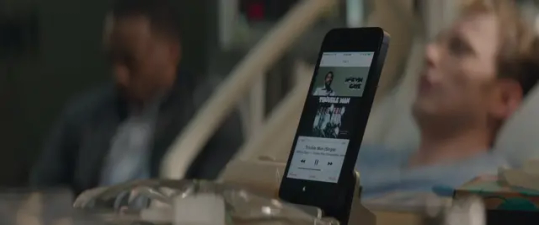
After the fall of S.H.I.E.L.D. (AFS), May 2014:
~A week AFS - Natasha is questioned at a hearing of the DoD committee.
~A week AFS - Bucky visits the Captain America museum exhibition and learns about his past (determined by the growth of his facial hair).
~2 weeks AFS - Rogers, Wilson, Fury and Romanoff meet at Fury's gravesite. Fury heads to Europe (determined by Fury not having a black eye anymore).
Sharon Carter joins CIA.
Maria Hill is hired by Stark Industries.
MCU Phase One Timelines Iron Man 3 Timeline Thor: The Dark World Timeline
#marvel#mcu#steve rogers#captain america#captain america the winter soldier#mcu timeline#nick fury#natasha romanoff#black widow#bucky barnes#winter soldier#sam wilson#falcon#maria hill#s.h.i.e.l.d.#hydra#brock rumlow#jasper sitwell#alexander pierce
51 notes
·
View notes
Photo
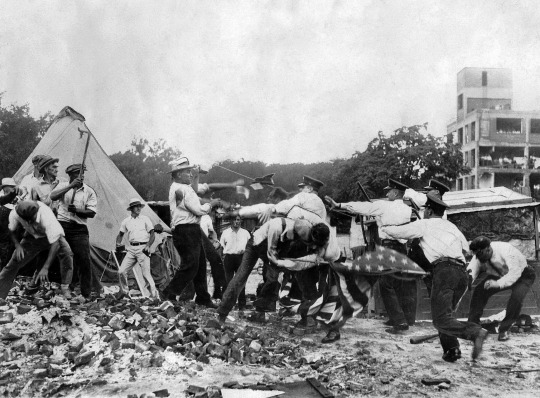
On this day, 28 July 1932, the US government sent in the army to attack World War I veterans and their families with tanks, fixed bayonets, teargas and sabres, killing three, when vets marched demanding the wartime bonuses they were promised. The bonus payments were due to be paid in 1945 but when the great depression hit, leaving many veterans destitute, they decided to demand earlier payments. Up to 25,000 vets, Black and white, formed a "Bonus Army" and set up camp in Washington DC. Major Patton, whose life had been saved by one of the protesters, advised his troops to stab protesters with bayonets, and kill a large number of veterans as "an object lesson". General MacArthur and Dwight Eisenhower were the other officers in charge of the operation which killed two veterans and an 11-week-old baby, partially blinded an 8-year-old boy, and injured a thousand others. Read this and hundreds of other stories in our book, Working Class History: Everyday Acts of Resistance & Rebellion, available here with global shipping: https://shop.workingclasshistory.com/products/working-class-history-everyday-acts-resistance-rebellion-book https://www.facebook.com/photo.php?fbid=668683575304861&set=a.602588028581083&type=3
604 notes
·
View notes
Text
New Findings For Alexander Hamilton’s Artillery Company!!
Today I came across “new” (new to me, anyway--nor have I seen a Hamilton biographer or scholar mention this) Captain Hamilton information and I feel bad for the people within my vicinity inside my campus library who had to hear my shocked squeal.
Within the Henry Knox Papers of the Gilder Lehrman Collection held by the Gilder Lehrman Institute of American History is an “Artillery record book” which was written by Colonel Samuel Shaw for Knox’s regiment of artillery between January 12, 1777 and March 24, 1777. The book itself is only 16 pages (which includes the cover page), but it contains all sorts of troop movements, artillery inventory, and other notes.
The following (under the cut) is a chronological rundown of all the times Hamilton or his men are mentioned in the book, along with the images themselves (as unfortunately the database that the Knox Papers were digitized to, American History 1493-1945, is limited to institutional access. However, it can be found here):
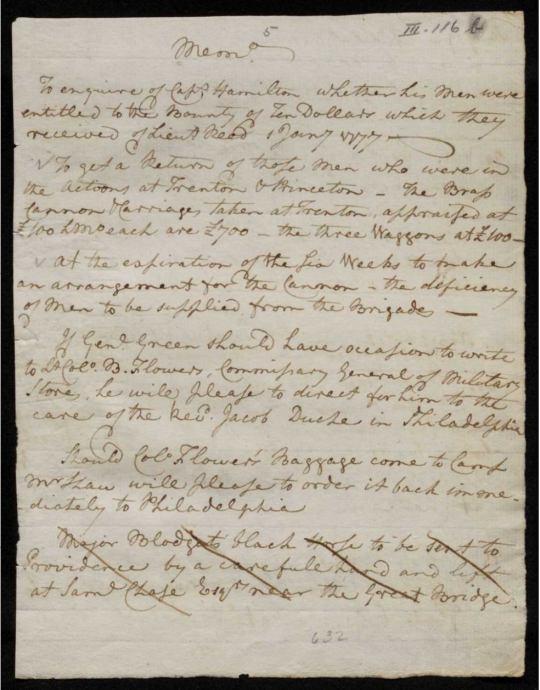
First up, on page five (seen above), Colonel Shaw wrote a series of "memos," or tasks needing completion. One of these, as seen at the top of the page, included "To enquire of Capt Hamilton whether his men were entitled to the Bounty of Ten Dollars which they received of Lieut Reed 1 Jany [January] 1777 --". The start of the new year came of course on the heels of the Battle of Trenton fought on December 26, 1776, wherein Hamilton's cannons played a major role.
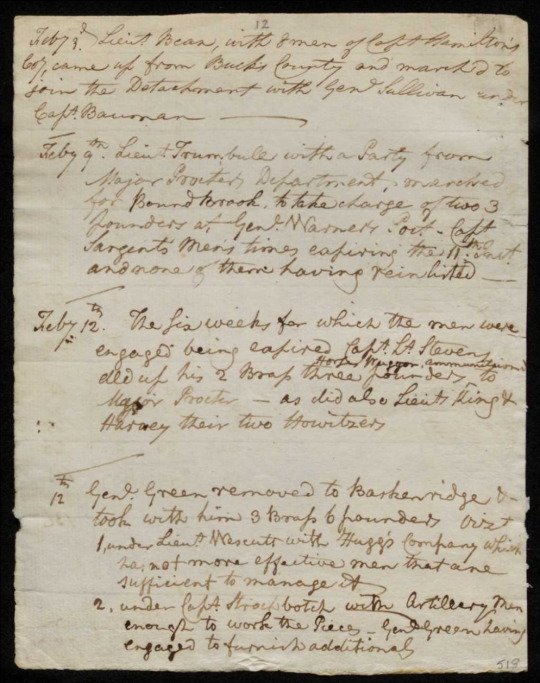
Next (and the most interesting to me), on page twelve (seen above) Shaw wrote a series of troop movements. Dated February 3, 1777, the colonel wrote that "Lieut [John] Bean, with 8 men of Capt Hamilton's Coy [Company] came [up?] from Bucks County and marched to join the Detachment with Genl [John] Sullivan and Capt [Sebastian] Bauman --". At this time, Hamilton was still in recovery from the illness he developed prior to Trenton, and the only other remaining officer in his company was his Third Lieutenant Thomas Thompson. This would thus mean that Hamilton and Thompson were left to watch over those that remained with the company while Bean and eight enlisted men were away.
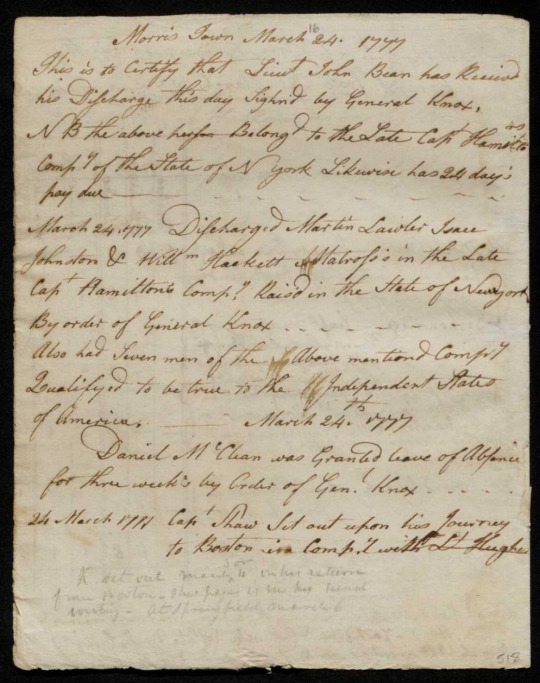
Lastly, on the final page of the record book (seen above) a series of discharges for men in Hamilton's company were written on March 24, 1777. By that time, Alexander Hamilton had joined Washington's staff as an aide-de-camp. Colonel Shaw, and another person who has not been identified, explicitly wrote:
Morris Town March 24, 1777
This is to certify that Lieut John Bean has Received his Discharge this day Sign'd by General Knox, N B the above person Belong'd to the late Capt Hamilton's Compy [Company] of the State of N[ew] York Likewise has 24 days pay due --
March 24, 1777 Discharged Martian Laulen[,] Isaac Johnston & Will'm [William] Hackett Matross's in the Late Capt Hamilton's Compy, Rais'd in the State of New York By order of General Knox . . . .
Also had seven men of the above mentioned compy Qualifyed [Qualified] to be true to the Independent States of America --
Note: the names of the matrosses discharged were cross-referenced with the names found in Alexander Hamilton's artillery company pay book for making my above transcription.
This entire record makes me extremely happy. I have new dates and more minute details and therefore a more concrete timeline surrounding Hamilton and the men of his company, yay!! Lately I have become very interested in the company's continuing service in the American Revolution after Hamilton's departure, and this record just gave me some fascinating information that links to some other information I have found on the whereabouts of some of these men written about above. But this is daring to open a can of worms that should be saved for a later post.
Frankly, it does not surprise me that I have not read about this record previously. It is so detailed and routine that it doesn't stand out necessarily on its own in the wider scope of things. However, as regards The American Icarus (and another project I may or may not be considering tackling?), this new information is very interesting and helpful. And I hope someone else here finds it interesting too.
#I would update my captain hamilton timeline if not for having hit my image and hyperlink limit on that post 😭#grace's random ramble#alexander hamilton#amrev#historical alexander hamilton#captain hamilton#henry knox#amrev fandom#historical hamilton#american revoluton#historical documents#18th century letters#continental artillery#continental army#george washington#battle of trenton#american history#historical research#historical resources#henry knox papers#gilder lehrman institute of american history#the american icarus#TAI#my projects#my writing#writeblr#new york provincial company of artillery
29 notes
·
View notes
Text
Lewis Nixon's Eulogy by Dick Winters
From the USAHEC archive (emphasis are mine):
I first met Lewis Nixon at Officer Candidate School, Fort Benning, Georgia, in April, 1942.
We both volunteered for the parachute troops in August, 1942 and we were both assigned to Co. E, 2nd Bn., 506th Parachute Infantry at Camp Toombs, Toccoa, Georgia.
We were together for the rest of World War II.
I have many memories of Lewis in combat.
1) On D-day I was involved in a fight to take over a battery of 105mm. cannon, firing on Utah Beach. During the battle Lewis went down Causeway #2 to the beachhead and brought back the first two tanks to come ashore at Utah Beach. He brought them to me to help finish off the battle.
From that point on, it seemed that every time I was committed to a fight, I found Nixon walking beside me.
2) In Holland, on September 17th, 1944, Operation Market Garden, right after the jump, Lewis was by my side as we approached the bridge at Son. The Germans blew the bridge and rocks and pieces of timber fell all around us.
3) On September 22, 191m, Company E was sent out as an advance party to secure Uden, a small town along Hell’s Highway.
I had only 80 men. We were cut off and surrounded. Nixon was with me.
Together, we went up a church tower for better observation of the battle. As we huddled behind the parapet, under the big church bell, a German evidently spotted us and sent a bullet to ring the bell over our heads. We literally jumped down the stairs in about two strides.
4) On September 25, 1944, the Germans cut Hell’s Highway again, this time south of Veghel. Nixon was again beside me as we crossed a big field to relieve the roadblock. In the middle of the field we came under machine gun fire from German Royal Tiger tanks and troops from the 6th German Parachute Regt.
As we hit the dirt, Nixon had a bullet hit the front of his helmet at such an angle that it just grazed his forehead, never breaking the skin, leaving only a brown mark on his forehead, before exiting through the side of his helmet.
l happened to look his way as he took off his helmet, looked at it and smiled. He refused to keep that helmet as a souvenir.
5) On October 5, 1944, in Holland, after a particularly hard fight, again, it was Nixon checking up on me to see how I was doing. It was Nixon who gave me his canteen when I asked for a drink of water - yes, the canteen was full of water - not Vat 69!
6) At Bastogne he had his name drawn out of the hat in a lottery that would have given him a 30 day leave in the States.
He refused the offer, saying he wanted to stay with the outfit on the line. How do you explain that kind of dedication? That kind of dedication is never talked about by the men, but it is never forgotten. At that time we were very short on men and officers, especially good , proven officers.
7) Nixon was moved from the 2nd Bn staff 'to the 506th Regimental staff as S-3, Plans and Training Officer. He was a key man in keeping the regiment together during the biggest battle of World War II at Bastogne.
8) On March 24, 1945, in Operation Varsity, the 17th Airborne jumped across the Rhine as the big push started to cross the Rhine River and go for Berlin. Lewis made that jump as an advisor. The plane he was in was shot down. As jumpmaster, he and three other men made it out before the plane crashed.
9) We were together every step of the way from D—Day to Berchtesgaden, May 8th, V-E Day.
Lewis Nixon was the best combat officer that I had the opportunity to work with under fire. He never at any time showed fear, and during the toughest times he could always think under fire. Very few men can think while under fire; very few men can remain poised under an artillery concentration.
Lewis always trusted me. While we were in training, before combat, Lewis hid his entire inventory of Vat 69 in my footlocker, under the tray holding my socks, beneath my underwear and sweaters. What greater trust, what greater honor could I ask for than to be trusted with his precious inventory of Vat 69?
While sharing all those days and experiences in training and in combat, we also shared our memories of our families, our school days, of our growing up, of our friends at home.
I felt as though I knew his mother, his father, his sister. I knew all about his grandparents on both sides of the family. He had a excellent heritage from both sides. He had been sent to excellent schools, and an Ivy League College. He had great wealth, was good-looking, had an excellent vocabulary, was very well-spoken; he was very well—read, smart, and had a good sense of humor. He had all the ingredients one could ask for to make a happy life - except one factor - LOVE!
Until Lewis met and married Grace he had never found or experienced true love.
It was only after his marriage to Grace that he found true happiness, peace within himself.
Together they travelled to just about every corner of the world; they shared many wonderful experiences together.
Grace demonstrated her love over these past years through her care for Lewis. Without the love and care-of Grace, Lewis would have died many, many years ago.
Whenever Grace would talk to me on the telephone, or write me a letter or a Christmas card, the message was always the same.
"Lewis is so brave; he never complains, he always has a smile for me whenever I come into his room — and that just makes it all worthwhile." I am sure those words are familiar to all of you here today.
I am also sure that all of you will agree with me when I say that with that smile Lewis gave Grace each day, it was his way of saying:
Thank you, Grace, for your care.
Thank you, Grace, for your patience in these trying times..
Thank you, Grace, for being faithful and understanding.
Thank you, Grace, for your love.
#just transcribe to text for archiving purposes#reread it and it made me sentimental again#dick winters#lewis nixon#ok so Nix brought the tanks for you not for the army#I get it#euology#listen to the soundtrack isn’t helping
41 notes
·
View notes
Text
Antifasiszta tüntetés a "becsület napja" ellen

(ENG below) Budapest, 2025. Nyolcvan évvel a II. világháború után még mindig vannak, akik a sok tízmillió ember haláláért felelős náci birodalmat dicsőítik. Titkos helyeken tartott nemzetközi náci-rock koncerteken éltetik a Harmadik Birodalmat. A nyilaskeresztes „legiohungaria” százfős tagsága titokban szervezve, egyenruhában felsorakozik egy fotó erejéig valahol, közterületen. Több ezer fős nemzetközi társaság pedig teljesen nyíltan, „emléktúrán” vonul végig a budai hegyeken, a náci „hősöket” éltetve. Közülük sokan birodalmi egyenruhában. Az importnácikkal megerősített hazai fasiszták éves seregszemléje évtizedek óta lezajlik minden év februárjában. Az apropót egy sikertelen katonai akció adja. Miután értelmetlen ellenállásukkal szétlövették a várost, 1945. február 11-én a körbezárt budai várból a német és magyar fasiszta csapatok kitöréssel próbáltak elmenekülni. Túlnyomó többségük ott veszett, mintegy húszezren haltak meg alig néhány óra alatt. Ezt hívják „becsületnapnak” - ilyen a nácik becsülete: tömeghalál és pusztulás. 1997 óta sokszor tudtak egyenruhás parádézást szervezni a mai nácik, de az erősödő antifasiszta ellenállás hatására ezt már nem tehetik. A hatósági tiltást kijátszva kezdtek el emléktúrát szervezni. A náci emléktúra – „kitörés-túra” – szervezői a magyar kormány legfelsőbb köreihez kapcsolódnak. A fő szervezők cégei állami megrendelések százmillióiból működtetik média(propaganda) cégüket, de a túra közvetlenül is kap állami támogatást. Az állami emlékezetpolitika szorosan kapcsolódik a náci történelemhamisításhoz. Ha ellenzed a nácik dicsőítését, ha nem akarsz az utcán masírozó náci keretlegényeket látni, akkor gyere és tüntess az újjáéledő fasizmus ellen! Semmi esélyt a fasizmusnak! Február 8. 15.00. Budapest, Széll Kálmán (Moszkva) tér.
Budapest, 2025 - Eighty years after the Second World War, there are still those who glorify the Nazi empire responsible for the deaths of tens of millions people. International Nazi rock concerts held in secret places celebrate the Third Reich.
The hundreds of members of the Arrow Cross "legiohungaria" organize secretly to line up in uniform for a photo somewhere in a public place. And an international group of several thousand people march publicly on a 'memorial hike' through the hills of Buda, cheering for the Nazi 'heroes', many of them in imperial uniforms.
The annual parade of local fascists reinforced by import-nazis has been held every February for decades. The occasion is a failed military operation. On 11 February 1945, after their futile resistance had blown the city to pieces, German and Hungarian fascist troops attempted to escape from the surrounded Buda Castle by breaking out. The vast majority perished there, about 20,000 of them were killed just within a few hours. They call that ‘the day of honour' - such is the Nazis' honour: mass death and destruction.
Since 1997, today’s Nazis have often been able to organise parades in uniform, but due to the growing anti-fascist resistance they cannot do it any longer. They started to organise a memorial hike to avoid the authorities' ban. The organisers of the Nazi memorial hike - the "breakout hike" - are linked to the highest circles of the Hungarian government. The companies of the main organisers run their media (propaganda) companies receiving millions of euros in state contracts, while the hike itself also receives direct state support. The state’s politics of memory is closely linked to Nazi historical negationism.
If you are against the glorification of the Nazis, if you don't want to see Nazi soldiers marching in the streets, then come and protest against the resurgence of fascism.
No chance for fascism!
8 February 15.00 Budapest, Széll Kálmán (Moszkva) Square.
25 notes
·
View notes
Text
I made a timeline of events for sid and eugene if anyone wants to write sidsledge fic and needs a reference (oh you want to write sidslege fic soooooo bad... right? right???)
TL based mostly on real life but also partly on the show:
Spring 1941 - Sid graduates high school*
December 7, 1941 - the attack on Pearl Harbor happens, Sid is in a pharmacy when he hears about it on the radio
December 8, 1941 - Sid enlists in the Marines at 17 years old (with parental permission), Eugene can’t because of his heart murmur
Spring 1942 - Eugene graduates high school
August 1942 - January 1942 - Sid fights on Guadalcanal
Fall 1942 - Eugene enrolls in military school to become an officer
December 1942 - Eugene flunks out to volunteer for the USMC
January 1943 - February 1943 - Sid in Australia
December 1943 - January 1944 - Sid on Cape Gloucester
Around June 1944 (?) - Sid and Eugene reunite on Pavuvu, Sid rotates home (historically, they were together for about 2 weeks)
September 1944 - November 1944 - Eugene in the Battle of Peleliu
March 1945 - July 1945 - Eugene in the Battle of Okinawa
August 1945 - atomic bombs are dropped and the war ends
December 1945 - Sid’s enlistment expires so he can go home to Mobile**
Until February 1946 - Eugene suffers occupation duty in China for about 4.5 months, then comes home
March 6, 1946 - Mardis Gras party Eugene and Sid go to (it seems like Sid is wearing a wedding band in this scene but I will ignore that… Ahistorical…)
April 1946 - Sid gets married to Mary Houston
*Sid was a year younger than Eugene but graduated before him because Eugene was sick as a child and held back two years in school
**After Sid went home, he was enrolled in a V-12 program, but I don’t know the details of this… yet
#some of these might not be entirely accurate down to the month but it's my best approximation using google lmfao#let me know if any of this is wrong <3#sidsledge#eugene sledge#sid phillips#the pacific
25 notes
·
View notes
Text

(ENG below) Budapest, 2025. Nyolcvan évvel a II. világháború után még mindig vannak, akik a sok tízmillió ember haláláért felelős náci birodalmat dicsőítik. Titkos helyeken tartott nemzetközi náci-rock koncerteken éltetik a Harmadik Birodalmat. A nyilaskeresztes „legiohungaria” százfős tagsága titokban szervezve, egyenruhában felsorakozik egy fotó erejéig valahol, közterületen. Több ezer fős nemzetközi társaság pedig teljesen nyíltan, „emléktúrán” vonul végig a budai hegyeken, a náci „hősöket” éltetve. Közülük sokan birodalmi egyenruhában. Az importnácikkal megerősített hazai fasiszták éves seregszemléje évtizedek óta lezajlik minden év februárjában. Az apropót egy sikertelen katonai akció adja. Miután értelmetlen ellenállásukkal szétlövették a várost, 1945. február 11-én a körbezárt budai várból a német és magyar fasiszta csapatok kitöréssel próbáltak elmenekülni. Túlnyomó többségük ott veszett, mintegy húszezren haltak meg alig néhány óra alatt. Ezt hívják „becsületnapnak” - ilyen a nácik becsülete: tömeghalál és pusztulás. 1997 óta sokszor tudtak egyenruhás parádézást szervezni a mai nácik, de az erősödő antifasiszta ellenállás hatására ezt már nem tehetik. A hatósági tiltást kijátszva kezdtek el emléktúrát szervezni. A náci emléktúra – „kitörés-túra” – szervezői a magyar kormány legfelsőbb köreihez kapcsolódnak. A fő szervezők cégei állami megrendelések százmillióiból működtetik média(propaganda) cégüket, de a túra közvetlenül is kap állami támogatást. Az állami emlékezetpolitika szorosan kapcsolódik a náci történelemhamisításhoz. Ha ellenzed a nácik dicsőítését, ha nem akarsz az utcán masírozó náci keretlegényeket látni, akkor gyere és tüntess az újjáéledő fasizmus ellen! Semmi esélyt a fasizmusnak! Február 8. 15.00. Budapest, Széll Kálmán (Moszkva) tér.
Budapest, 2025 - Eighty years after the Second World War, there are still those who glorify the Nazi empire responsible for the deaths of tens of millions people. International Nazi rock concerts held in secret places celebrate the Third Reich.
The hundreds of members of the Arrow Cross "legiohungaria" organize secretly to line up in uniform for a photo somewhere in a public place. And an international group of several thousand people march publicly on a 'memorial hike' through the hills of Buda, cheering for the Nazi 'heroes', many of them in imperial uniforms.
The annual parade of local fascists reinforced by import-nazis has been held every February for decades. The occasion is a failed military operation. On 11 February 1945, after their futile resistance had blown the city to pieces, German and Hungarian fascist troops attempted to escape from the surrounded Buda Castle by breaking out. The vast majority perished there, about 20,000 of them were killed just within a few hours. They call that ‘the day of honour' - such is the Nazis' honour: mass death and destruction.
Since 1997, today’s Nazis have often been able to organise parades in uniform, but due to the growing anti-fascist resistance they cannot do it any longer. They started to organise a memorial hike to avoid the authorities' ban. The organisers of the Nazi memorial hike - the "breakout hike" - are linked to the highest circles of the Hungarian government. The companies of the main organisers run their media (propaganda) companies receiving millions of euros in state contracts, while the hike itself also receives direct state support. The state’s politics of memory is closely linked to Nazi historical negationism.
If you are against the glorification of the Nazis, if you don't want to see Nazi soldiers marching in the streets, then come and protest against the resurgence of fascism.
No chance for fascism!
8 February 15.00 Budapest, Széll Kálmán (Moszkva) Square.

29 notes
·
View notes
Text
Look maybe the fandom has talked about this before but I was a literal child when the fandom was born so I'm gonna talk about it now. Childhood is temporary but fandom is forever (no it's not)
Peggy Carter's birthday on the MCU wiki is listed as April 8, 1921. Based on some speculative timelines, we can determine that the events of Captain America: The First Avenger span from approximately June 1943 to March 1945, so Peggy would have been between the ages of 22 years 2 months and 23 years 11 months.
Agent Carter season 1 takes place in April/May 1946, which we know because the season finale happens on the first anniversary of V-E Day on May 8. It's not entirely clear how many days pass over the course of the season (unless it is and I'm just not dedicated enough), but given that episodes 5-8 seem to happen over the course of about 50 hours, it seems safe to say it's about a week to ten days. This means Peggy is 25 years 1 month old at the end of the season.
However, in S01E01 "The Iron Ceiling" Daniel looks at Peggy's file to cross-reference an injury she received with the ones in the photos of the blonde at the club, who is of course Peggy in disguise. The incident report shows her age at the time of the injury as 26 years 11 months old.
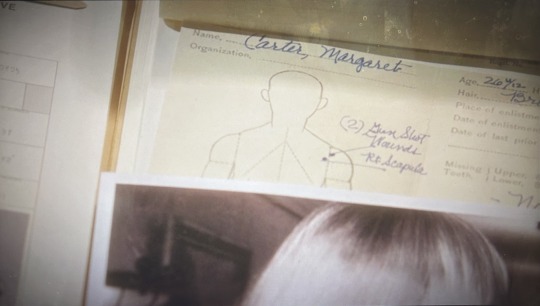
(ignore the fact that I took a picture of my laptop with my phone, the top right corner has her age)
These means one of a few things is possible. The first is that the show got her age wrong on accident, either because they didn't know her birthday or they didn't scrutinize the timeline like a fandom does, which is very likely but boring. Second is that it's possible her birthday was made canon after the show, which is also possible and boring. Another possibility is that the MCU wiki has her birthdate wrong, stating that she is younger than canon says she is, which seems unlikely to me and is also a boring explanation.
The most fun and most headcanon-y explanation is that she really was born in 1921 but she, for whatever reason, lied about her age and said she was born in 1918, making her 28 years 1 month old at the time of the first season.
1918 seems the most logical year because the show implies Daniel doesn't know about the injury, but it is established that the two have known each other for six months. If she was 27 at the time of the show the injury would be two months old and Daniel would likely know about it. Additionally, the wound appears as healed scars, meaning it has been healed for some time, likely longer than two months.
Assuming she only lied about her birth year and not the actual day, a birth year of 1918 places the injury in March 1945, which makes logical sense with the timeline of CA:TFA, placing the event in the approximately two weeks between Cap going in the ice and her birthday.
1918 also makes sense because, assuming she got involved with S.O.E. in 1940 like the show depicts, she would have been about 19 pretending to be 22. If she had lied and said she was much older, it seems likely she would have been caught in the lie. Additionally, Steve was born in 1918, Bucky and Howard in 1917, and Daniel and Jack sometime in 1918 or 1919 (the wiki is vague for both of them), so her supposed age would be consistent with the ages of the people she worked with.
I personally headcanon that she was born in 1921 and lied that she was born in 1918. I also headcanon that Michael was born in 1918 and they used the same year as if they were twins, which has far less basis in canon and is more of a little treat for me.
If anyone has insight/proof of some other alternative/theories/headcanons, let me know because I would love to hear!
#thank you for coming to my tedtalk#im just a silly girl obsessed with her silly show#agent carter#peggy carter
19 notes
·
View notes
Text
As far as Johnny’s concerned, he should be heading in the opposite direction: towards the States, not deeper into the heartlands of the continent. Clearly, however, someone higher up has a different idea, deciding his time is better spent crowding into the back of a DUKW, watching scores of surrendered Krauts march by.
chapter 8. the beginning of hot austrian summer 1945
20 notes
·
View notes
Text
V-E Day, 79 years ago
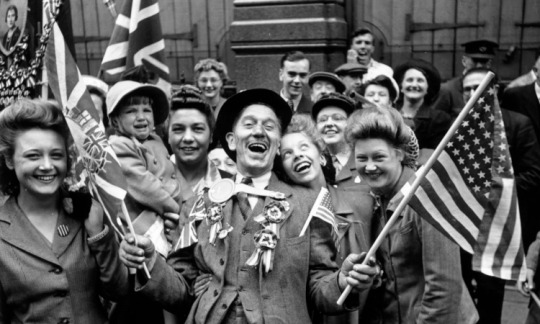
"I say that in the long years to come not only will the people of this island but of the world, wherever the bird of freedom chirps in human hearts, look back to what we’ve done and they will say “do not despair, do not yield to violence and tyranny, march straightforward and die if need be-unconquered.'"
PM Winston Churchill, May 8, 1945
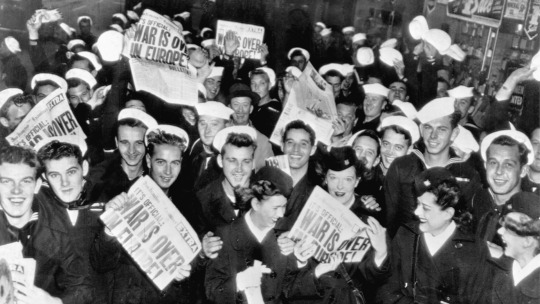
"Let us not forget, my fellow Americans, the sorrow and the heartache which today abide in the homes of so many of our neighbors—neighbors whose most priceless possession has been rendered as a sacrifice to redeem our liberty."
President Harry S. Truman, May 8, 1945
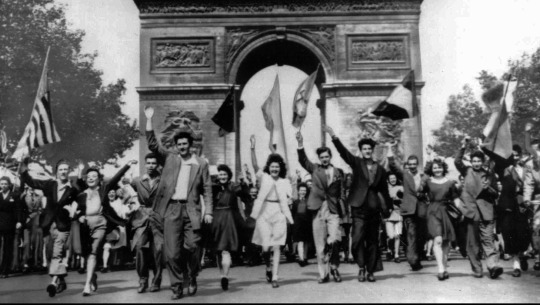
"Célébrons votre victoire : victoire de Mai, victoire radieuse de printemps qui redonne à la France la Jeunesse, la force et l’Espoir."
General de Lattre de Tassigny, Commander of the Free French Army, May 9, 1945
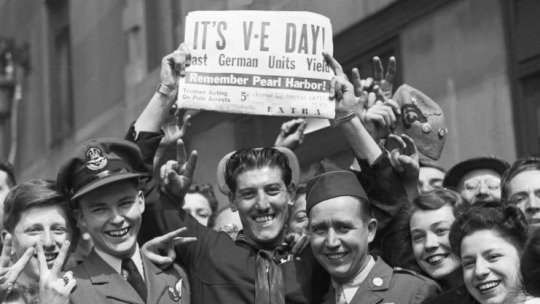
#wwii#V-E Day#victory in Europe#history#band of brothers#v e day#please no negativity on this post my friends#it's for honoring those who fought#and the victory over fascism
79 notes
·
View notes
Text
Here’s something I’ve been translating on and off for the past week or so! I was looking at old German youth magazines in order to find interesting articles about classic rock bands (specifically Pink Floyd) and came across this in the 01/1978 issue of BRAVO magazine (One of the most famous teen/young adult magazines in Germany that’s been there since 1958 and is still going strong today!) A lot of youth magazines back in the day had articles and posters about rock bands because, well, that’s the people who were celebrities at that time! This page includes both short descriptions of the band members and a short history of the band up until that point when the issue came out! Enjoy ;)
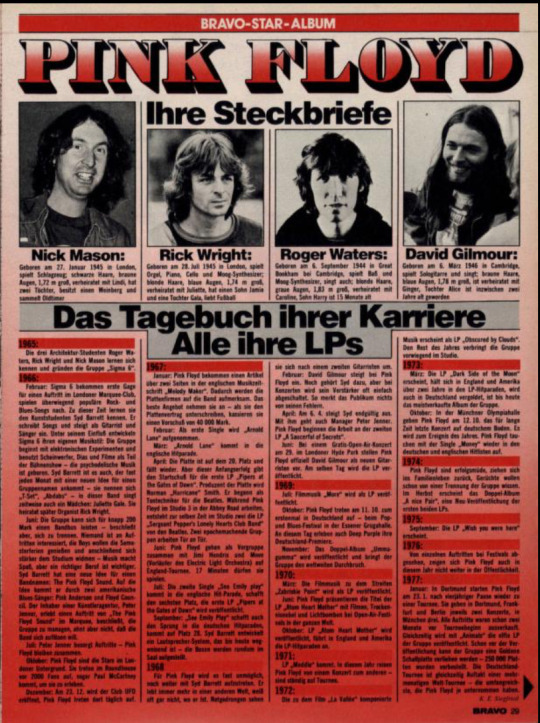
Here’s the original picture
And here is the translation! (Italized text are context comments added by me to add to the understanding of this text!)
Warning: Some of the information here is obviously incorrect!
Pink Floyd: Their profiles
Nick Mason:
Born on the 27th of January 1945 in London, plays drums, has black hair, brown eyes, is 1,72 m tall (for non metric peeps it’s approximately 5 foot 8), is married to Lindy, has two daughters, owns a vineyard and collects old cars (old timers in German means old/vintage cars)
Rick Wright:
Born on the 28th of July 1945 in London, plays the organ/keyboard, piano, cello, and Moog-synthesizer; has blonde hair, blue eyes, is 1, 74 m tall (approximately 5 foot 9), is married to Juliette, has a son named Jamie, and a daughter named Gaia, loves football (or soccer for American peeps)
Roger Waters:
Born on the 6th of September 1944 in Great Bookham near Cambridge, plays bass, Moog-synthesizer, and sings as well; has blonde hair, grey eyes, is 1,83 m tall (approximately 6 feet), is married to Caroline, and has a 15 month old son named Harry.
David Gilmour:
Born on the 6th of March 1946 in Cambridge, plays lead guitar and sings; has brown hair, blue eyes, is 1,78 m tall (approximately 5 foot 10), is married to Ginger, and has a 2 year old daughter named Alice.
The diary/summary of their career; All their albums
1965
The three architecture students Roger Waters, Rick Wright, and Nick Mason meet and get to know each other, establishing the band Sigma 6.
1966
February: Sigma 6 gets their first fee for a performance in the London Marquee Club and mostly cover popular rock and blues songs. During this time they meet art student Syd Barrett. He writes songs and joins the band as a guitarist and singer. Under his influence Sigma 6 evolve into their own music style: The group does electronic experiments and uses spotlights, reversal film, and recorded footage as part of their stage shows. Thus psychedelic music is born. Syd Barrett is as well (psychedelic), who now comes up with new names for the band almost every month — they call themselves “T-Set,“ “Abdabs” — and in this group a girl sings as well from time to time: Juliette Gale. She later marries keyboardist Rick Wright.
June: The group could pay for a band bus for approximately 200 Mark (the German currency at the time of this article), but decide to separate for the time instead. No one is interested in performing, since the boys want to enjoy the semester holidays as well as after them improve and work harder on their studies; music is fun but a real job is more important. Syd Barrett then has a new idea for a band name: The Pink Floyd Sound. He comes up with his idea through combining the names of two American blues singers: Pink Anderson and Floyd Council. The owner of an artist agency, Peter Jenner, sees a performance from The Pink Floyd Sound in the Marquee, and then from there on decides to manage the band, not knowing the band wanted to break up.
July: Peter Jenner gets the band gigs, and thus Pink Floyd stays together.
October: Pink Floyd are now the stars of the London Underground. They perform in the Roundhouse to 2000 fans, with even Paul McCartney being there to see them.
December: On the 23rd of December the UFO club opens, with Pink Floyd performing there daily henceforth.
1967
January: The English music magazine “Melody Maker” write an article about Pink Floyd, which makes record companies curious about the band. The band accepts the best offer, and as they sign the record label contract, they cash in an advance payment of 40 000 Mark.
February: The first single “Arnold Layne” gets recorded.
March: Arnold Layne goes to the English hit charts.
April: The single is on number 20 in the charts and then falls off. But this beginning success gives them the push they needed to record their first album “The Pipers at the Gates of Dawn.“ Norman “Hurricane” Smith serves as producer for this album, and began his career as a recording engineer for the Beatles. While Pink Floyd work on their album in studio 3 of Abbey Road studios, the Beatles work on their album “Sgt. Pepper’s Lonely Hearts Club Band” at the same time in studio 2; two decade defining groups working next door.
June: Pink Floyd join as a supporting act along with Jimi Hendrix and the Move (runner up band to Electric Light Orchestra) for an England tour, but only get to play 17 minutes.
July: The second single “See Emily Play,“ becomes part of the English hit charts, coming in at number 6, and the first album “The Pipers at the Gates of Dawn” releases.
September: See Emily Play also goes into the German hit charts and reaches number 28. Syd Barrett at this time also creates a speaker system which is still useful today, where the speaker boxes are placed all around the room.
1968
At this time, it is practically impossible for Pink Floyd to continue performing with Syd Barrett. He is more and more off in his own world and mind, often not knowing where he is. Out of necessity, the band thus searches for a second guitarist who could join the band.
February: David Gilmour joins Pink Floyd. Syd is still part of the band, but during concerts his amps are often not even turned on, so that the audience doesn’t know any better about his mistakes.
April: On the 6th of April Syd definitively leaves the band, with manager Peter Jenner going with him. Pink Floyd begin working on their second album “A Saucerful of Secrets.“
June: At a free open air concert on the 29th in the London Hyde Park the band officially announces and debuts David Gilmour as their new lead (and only) guitarist. On the same day the new album releases as well.
1969
July: The soundtrack album Pink Floyd worked on for the film “More,” releases.
October: Pink Floyd have their first concert in Germany on the 11th of October at the Pop and Blues Festival in the Essen Grugahalle venue. On this day, Deep Purple celebrate their first concert in Germany as well.
November: The double album “Ummagumma” releases and makes the group successful worldwide for the first time.
1970
March: The soundtrack album Pink Floyd worked on for the film “Zabriskie Point” releases.
June: Pink Floyd perform the title track of their upcoming new album “Atom Heart Mother” worldwide at open air festivals with recorded footage, dry ice fog, and light bombs as part of their special effects on stage.
October: The album “Atom Heart Mother” releases and leads the album charts in England and America.
1971
The album “Meddle” comes out. This year Pink Floyd is particularly busy; they go from one concert to the next and have multiple tours worldwide.
1972
The soundtrack album Pink Floyd worked on for the film “La Vallée” releases under the title “Obscured by Clouds” as their new album. The rest of the year the band spends inside the studio.
1973
March: The album “Dark Side of the Moon” releases and is on the English and American album charts for over two years, and also goes gold in Germany. It is to this day the band’s most sold album.
October: Pink Floyd perform their last German concert for a long time on the 12th of October at the Olympiahalle in Munich, and it becomes the sensation of the year. Pink Floyd also make their way into the English and German single charts again with the single “Money.”
1974
Pink Floyd are tired of success and go back to their private family lives, with rumors appearing that the group will break up. In autumn, the double album “A nice pair” comes out, which is a rerelease of their first two albums.
1975
September: The album “Wish You Were Here” releases.
1976
This year, Pink Floyd doesn’t appear publicly that much as well, except for some performances at festivals.
1977
January: In Dortmund Pink Floyd start their first German tour since 3 years ago on the 23rd. They have 2 concerts each for Dortmund, Frankfurt, and Berlin, with Munich having 3. All concerts were sold out 2 months before the tour started. Simultaneously the 11th album of the band, “Animals” releases. Even before the album released, “Animals” goes gold, with 250 000 records being preordered. This German tour is also the starting point of a months long worldwide tour — the most comprehensive one that Pink Floyd have undertaken yet.
Written originally by: K. E. Siegfried
Translated from German to English by: me! (Vik)
(Btw my source to where I found this is the Internet archive, love that place!)
also here are some pictures that were included in the magazine of the band!
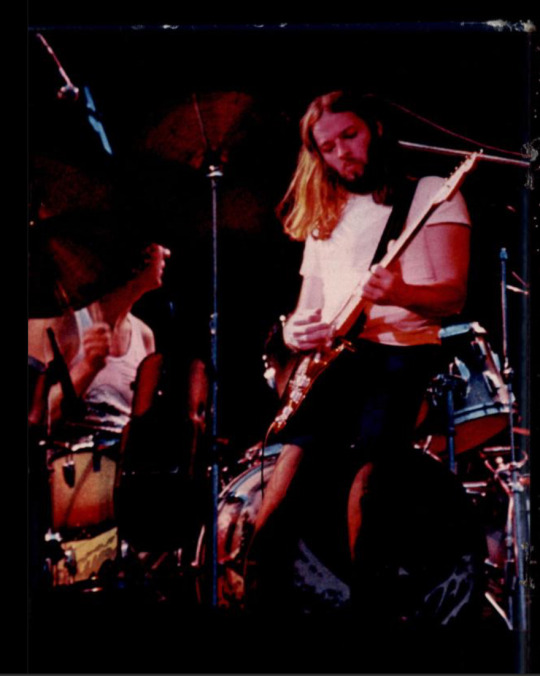

#Pink Floyd#rock photography#classic rock#60s#60s rock#70s#70s rock#roger waters#david gilmour#nick mason#rick wright#richard wright#syd barrett#rock history#music history#60s music#70s music#translation#magazine article#old magazines
44 notes
·
View notes
Text
MCU Timeline: Captain America: The First Avenger
March 10, 1917 - James Buchanan Barnes is born.
August 15, 1917 - Howard Anthony Stark is born.

July 4, 1918 - Steven Grant Rogers is born.
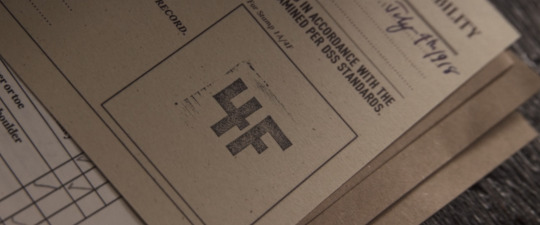
April 9, 1919 - Margaret "Peggy" Carter is born.
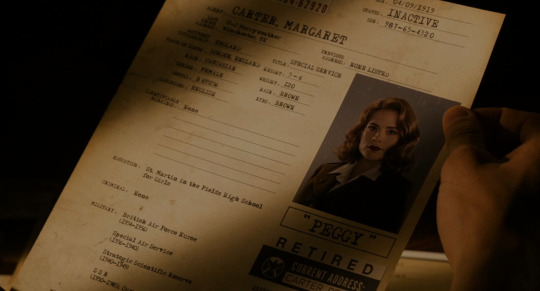
Why 1919 (deleted scene from The Avengers) and not 1921 (Agents of S.H.I.E.L.D.), as stated in Wikipedia: Agents of S.H.I.E.L.D. is not canon for the MCU (events of the show take place in another universe, where Peggy was born in a different year and had a different background).
1934-1936 - young Peggy serves as a nurse in the British Air Force.
1936-1940 - Peggy serves in the Special Air Service.
1940:
Peggy joins the Strategic Scientific Reserve.
Howard founds Stark Industries and becomes its CEO.
May 1941 - Steven Rogers attends a Dodgers vs The Phillies baseball game at Ebbets Field, Brooklyn.
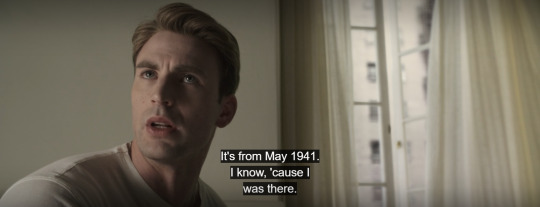
March 1942 - Red Skull invades Norway and extracts the Tesseract.
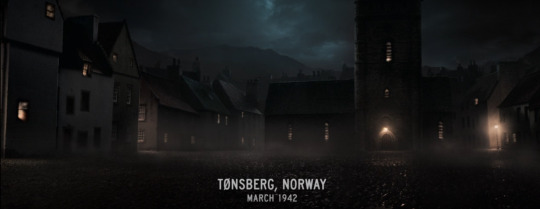
1942/1943 - The Allies receive a gift from Wakanda: Vibranium. It is given to the SSR's Head Engineer - Howard Stark.
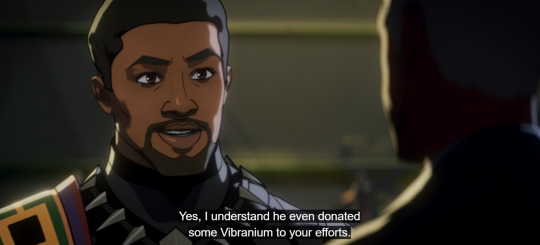
1943:
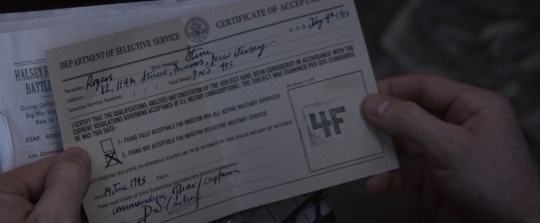
June 14:
13:50 - Steve gets his last 4F.

And his last beating in the alley a couple of hours later.
Evening - he and Bucky go to the "World Exposition of Tomorrow", where Howard demonstrates his (almost) flying car. Steve meets Dr. Erskine and gets a (falsified) 1A.
June 15:
Sergeant James Barnes heads to Europe with the 107th Infantry Regiment.
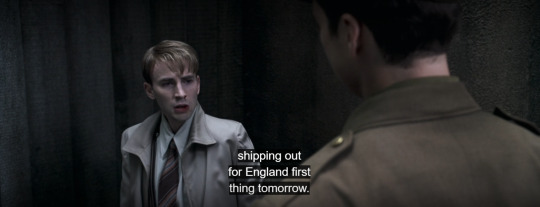
Candidate Rogers begins his trial week for Project Rebirth at Camp Lehigh in NJ.

June 21 - Dr. Erskine makes his choice and informs Rogers. They talk about it, about the serum and HYDRA.
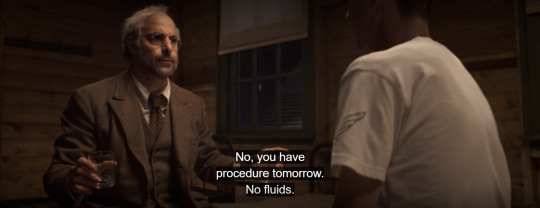
June 22, morning - Steve becomes a super soldier. Erskine is killed. The last vial of serum is destroyed.
June 23:
Rogers is offered a position in the USO theater (to help sell war bonds) and receives a (fake) rank of captain.
Night - SSR (including Peggy and Howard) is being retasked to fight HYDRA and goes to London, UK.

July-October - Captain America's US tour (over 200 performances).
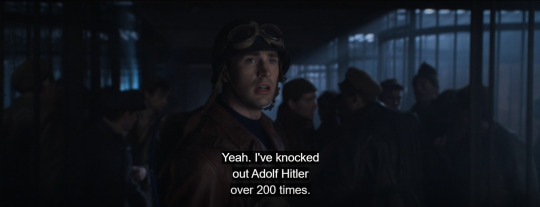
November 3rd:
Captain America show in Italy.

Night - Steve goes behind the lines to a HYDRA camp in Austria to rescue Bucky with the help of Peggy and Howard.
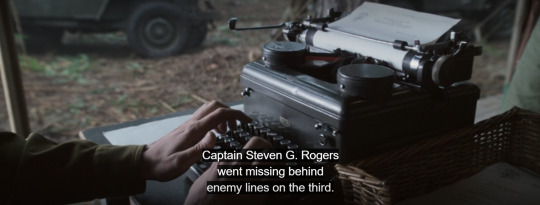
November 5th - he returns with 400 (CATFA) or 163 (CATWS) liberated soldiers.
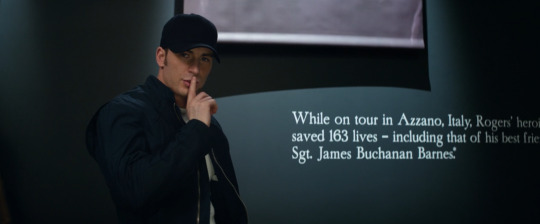
A couple of days later - SSR in London. Based on the locations of HYDRA bases remembered by Rogers, they develop a plan to combat HYDRA. Steve puts together a team.
Marvel Studios' mistake: the medals and badges Steve wears don't make any sense at this particular moment. He simply had neither the time nor the opportunity to earn the Combat Infantry Badge, or the Presidential Unit Citation Badge, nor could he receive the American Defense Service Medal.

Next day, 8 am- Steve meets with Howard and receives his vibranium shield.
1944:
November 1943 - November 1944 - Howling Commandos destroy HYDRA weapons factories.

December 1944 - January 1945 - attack on the train with Dr. Zola. Bucky falls from the train from a great height and is declared killed in action. Zola is captured.

1945:
Soon after, early January - the Valkyrie is finished and ready to attack major US cities. SSR receives information about the location of HYDRA's main base in the Alps and heads there.
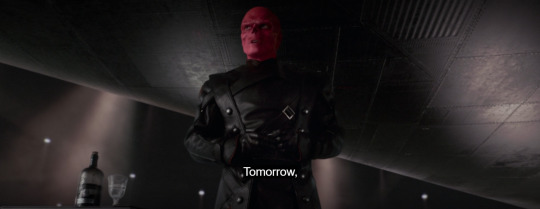

Next day - SSR attacks HYDRA's main base. Red Skull teleports to Vormir. The Tesseract is lost in the Arctic Ocean. Crash of the Valkyrie. Steve goes into suspended animation.
After January 1945 - Howard Stark leads expeditions to find Rogers. He finds the Tesseract, but not Captain.
March 23, 1945 - Case №17 is opened. James Barnes "joined" the HYDRA branch in the USSR.

May 8, 1945 - VE-Day.
Spring-Summer 1945 - Howard is involved in the Manhattan Project.
1946:
December 1945/January 1946 - Peggy is assigned to the SSR office in New York.
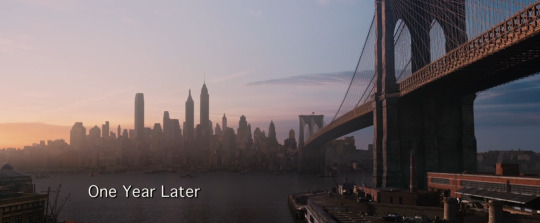
March 1946 - events of "Agent Carter" one-shot.
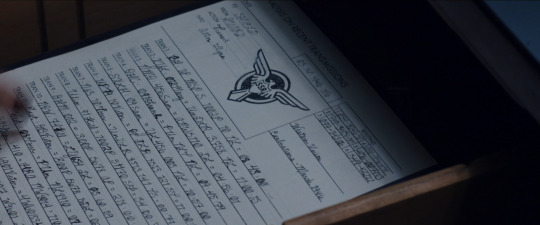
2012:
Early 2012 - 67 years later, Steve Rogers is found frozen but alive.
April 2012 - Rogers wakes up in the S.H.I.E.L.D. recovery room in New York City.
Iron Man (2008) Timeline
The Incredible Hulk (2008) Timeline
Iron Man 2 (2010) Timeline
Thor (2011) Timeline
The Avengers (2012) Timeline
#marvel#mcu#steve rogers#captain america#bucky barnes#james barnes#mcu timeline#captain america the first avenger#captain america the winter soldier#agent carter#peggy carter#howard stark
94 notes
·
View notes